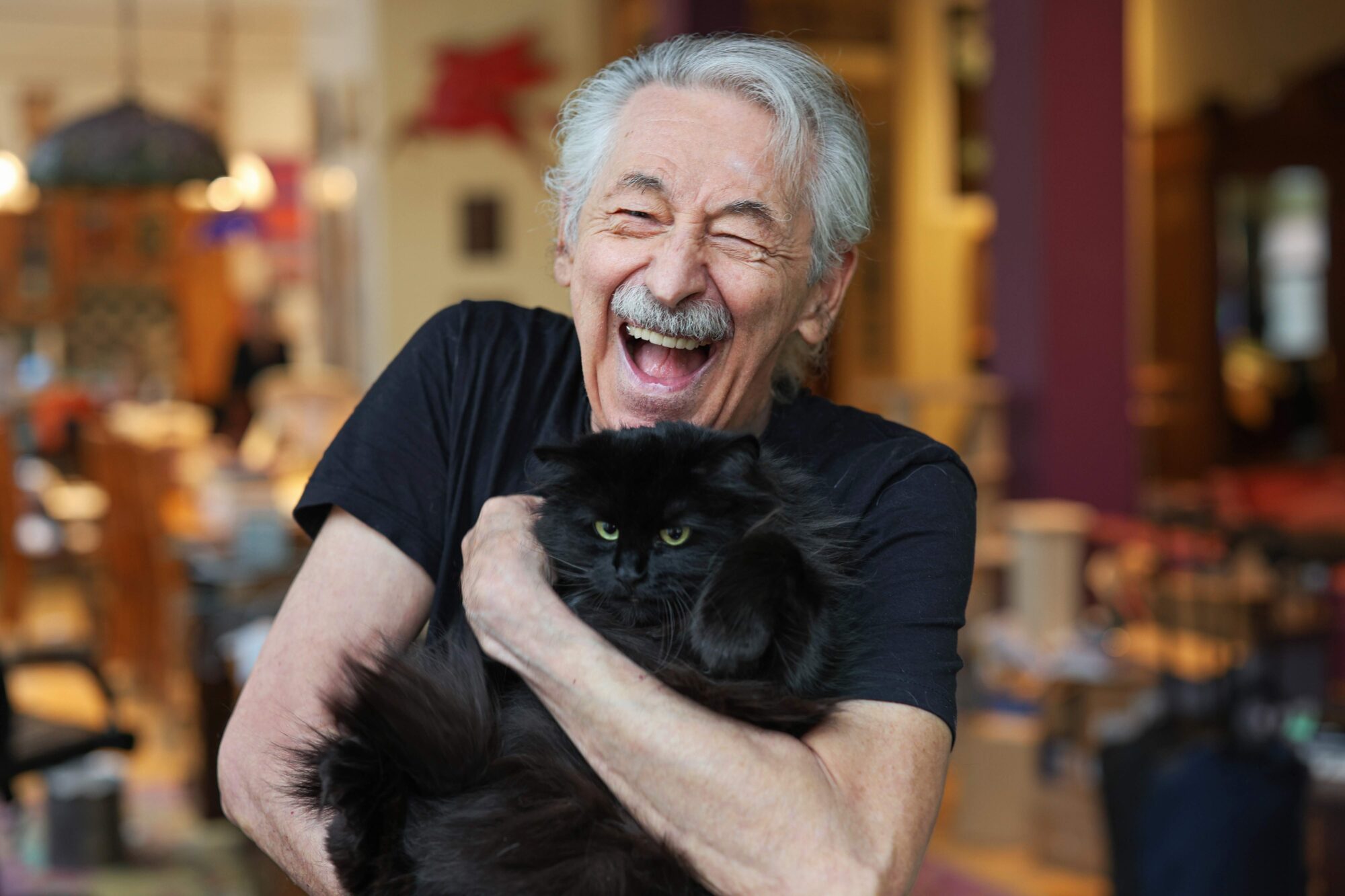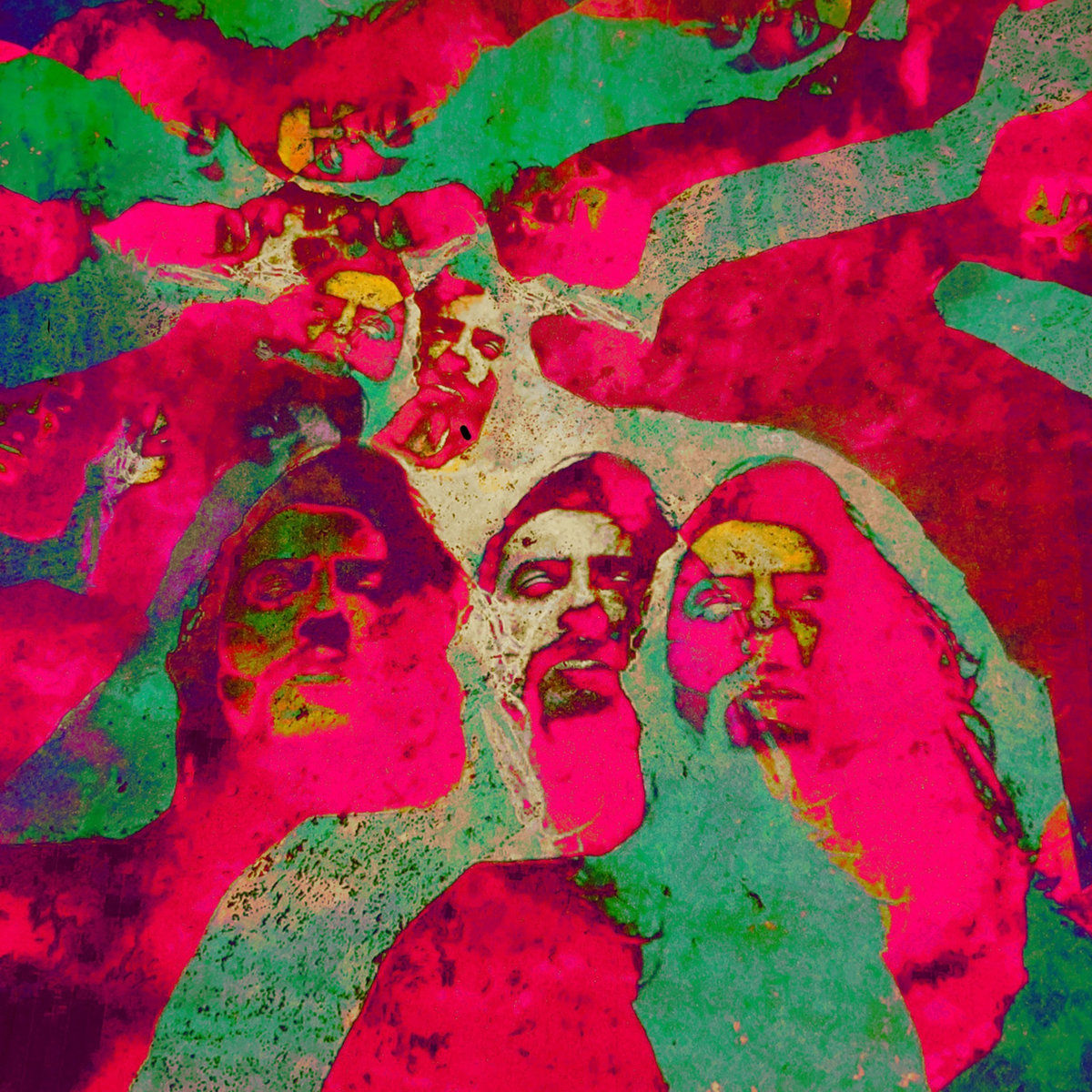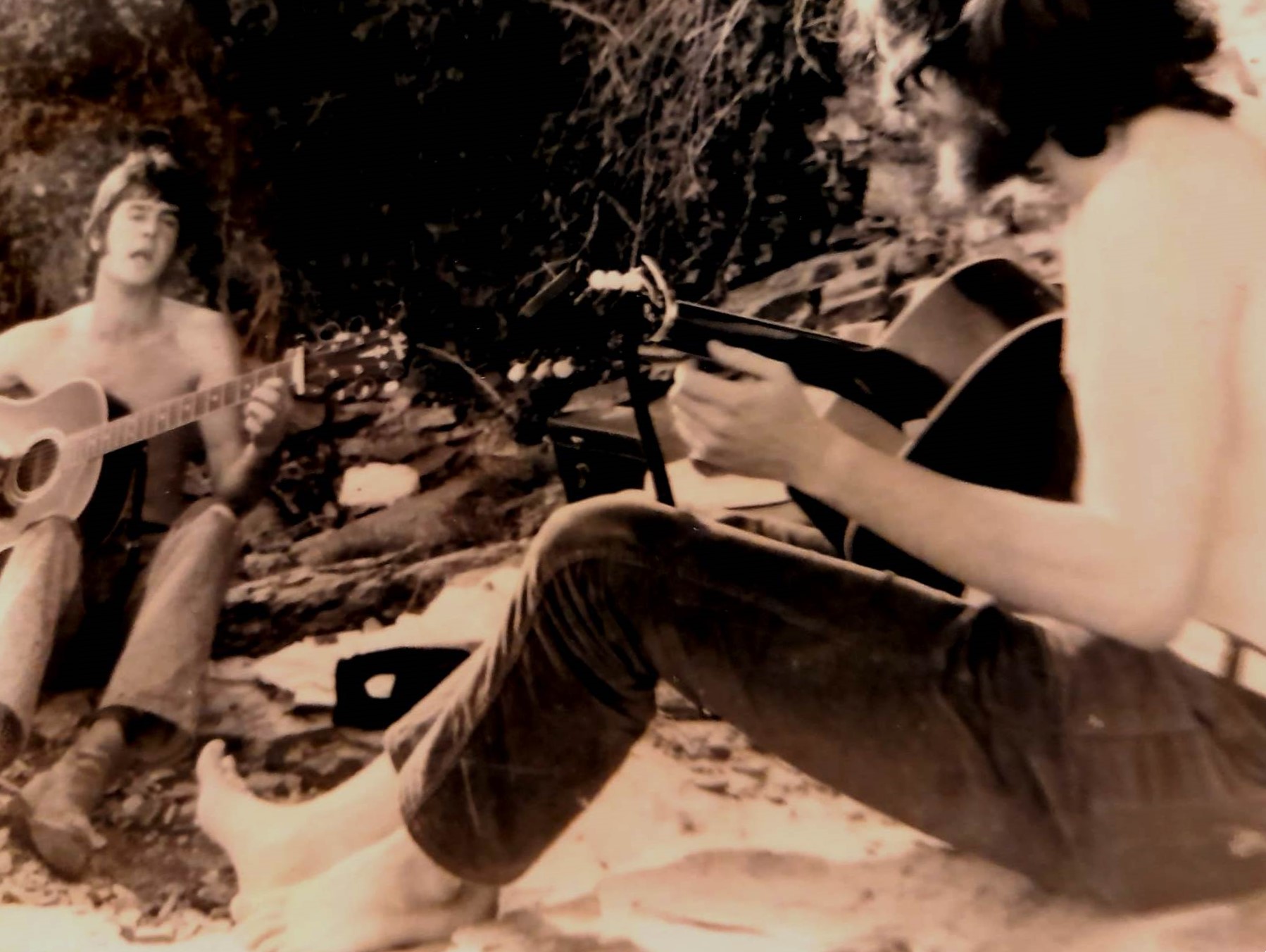Aleks Lenard | The Man Who Brought Rock In Opposition To Slovenia
The key figure in the story of Rock in Opposition in Slovenia [at the time part of the Federal Republic of Yugoslavia] is Aleks Lenard. In 1974, Stane Sušnik invited him to create an independent radio show on Radio Študent [the first independent, non-commercial student radio station in Europe, founded in 1968, still active]. This was the first radio show dedicated to experimental music in Yugoslavia. It was called Untergrunt Molekula [Underground Molecule]. Aleks Lenard focused on a wide range of non-commercial music, including progressive rock, with a focus on krautrock and German electronic music, American outsider rock, et cetera.
Untergrunt Molekula existed until 1978. In addition to DJ activities on Radio Študent, Lenard published his own texts extensively, in Slovenian magazines such as Mladina, Nedeljski dnevnik, Tribuna, Stop, and Glasbena mladina. Through writing and working in the media, he created an information platform that significantly influenced the positive reception of opposition music.
Only two years after the first international RIO festival in London, Aleks Lenard and Zorko Škvor [ŠKUC] organized the first RIO festival in Ljubljana. It took place from 20 to 21 June 1980 on the terrace of the Rio Inn in the city centre. It featured Srp (Ljubljana), Art Zoyd (Maubeuge, France), Mamma Non Piangere (Milan, Italy) and Univers Zero (Brussels, Belgium). The festival received a great response from the audience. This was the first manifestation of RIO in Eastern Europe. A year later, on 17 December 1981 at the Ljubljana Festival Hall, the second edition of the festival, entitled New Year’s Sale, followed. It featured Begnagrad, Srp, D’Pravda, Istranova, Alfredo Lacosegliaz (Gruppo Folko Internazionale, Milan), Andrej Rozman Roza and Marko Brecelj. The third edition of the RIO festival was in Križanke from 2 to 3 June 1982 with the bands Laibach, Black Sheep (Netherlands/England), Nekropolis (Germany), D’Pravda, Begnagrad and Art Zoyd (France).
Members of the groups Begnagrad, Srp and D’Pravda (Bogo Pečnikar, Iztok Osojnik, Gojmir Lešnjak, Tadej Pogačar) were active in the field of visual art – in the media of photography, experimental film and painting (scenography, graphic design), in which they developed an original visual language. Several members of the groups (Andrej Rozman Roza, Iztok Saksida Jakac, Gojmir Lešnjak) were also internationally active in other spheres of artistic creativity, in the fields of literature, theatre, and alternative street theatre.
“RIO was a music association that in the late 1970s represented a collective of progressive groups associated with opposing the music industry”
Tadej Pogačar: Where did you encounter (German, American, French) experimental, progressive music in the early 1970s before you started working on Radio Študent? Who were your favorites?
Aleks Lenard: I became interested in non-cliché or different rock music in 1970. My classmate had early records from Soft Machine, Egg, Matching Mole and the first album from Robert Wyatt (the beginnings of the so-called “Canterbury rock” scene), which he got from England. The German so-called “krautrock” (Amon Düül II, Can, Faust, Neu!, et cetera) was introduced to me by a German friend via cassettes. Since I was interested in the matter, I then bought these kind of records in Switzerland, where I visited my uncle, and there was a much larger selection of these kind of music than in Italy and Austria. I got to know the American and French alternative rock music of that time (Frank Zappa, Captain Beefheart, Magma, Zao, et cetera) by reading English music publications and I ordered the records by mail from England, according to the reviews I read. I also ordered German experimental rock (“krautrock”) from Virgin, which initially only sold and did not release records, as the owner of the label Richard Branson bought quite a lot of this material from Germany and had it for sale. Virgin had quite an extensive selection of experimental records. At that time in high school in the early 70’s, before I started presenting this kind of music on Radio Študent, I was listening to The Mothers of Invention, early Pink Floyd, Soft Machine, King Crimson, Van der Graaf Generator, Caravan and Gentle Giant.
Have you collaborated with selected labels?
At that time I was more of a fan of underground and progressive music, but later in 1974, when I got my show on Radio Študent and started writing articles about creative and inventive rock music in Slovenian publications and organizing concerts within ŠKUC, I collaborated with Virgin Records, Recommended Records, Ralph Records, Eurock from the USA and Mute Records. They sent me promo copies, and I wrote reviews for Radio Študent and articles in other print media (Stop, Mladina, Tribuna, Ljubljanski dnevnik, Nedeljski dnevnik, Delo, Đuboks) and thus presented this kind of music to those interested in Slovenia and at the same time worked on publicity for performers and labels that released those records. However, I got most of these records, which were very difficult to get due to non-commerciality, from the performers themselves (eg Samla Mammas Manna, Univers Zero, Art Zoyd) and from the founder of the Rock and Opposition Association (RIO) Chris Cutler (drummer and lyricist of English band Henry Cow), with whom we exchanged records by mail (I sent him YU rock because he was interested if there was something interesting for him in these places, and he sent back avant-rock to his liking), and he also sent a few promo copies from artists that he released via his Recommended Records label. Chris and I corresponded quite a bit, in terms of music, and later we also often met live in connection with concerts. It was he who, with his rich knowledge and experience in the field of experimental music, helped me a lot to sharpen my critical distance and musical taste, so that I separated the grain from the weeds in terms of inventiveness and originality. Chris Cutler and Nick Hobbs, with whom he founded RIO and Recommended Records, then in 1978, due to their mutual cooperation in the sale and distribution of records, compiled a fairly extensive list of various subjects associated with experimental and creative rock music in different countries, including their contact data and addresses. On this list were all the bands members of RIO and other artists who distributed records to Recommended Records, record labels that released such records, and journalists and others who represented this music on the radio and in the media. This enabled their direct communication with each other and arranging for concerts and tours without intermediaries. Since my data was also on this list, I also received records, promotional materials and photos from the bands on this basis, which I then used in my radio shows, articles and in organizing concerts. Most of these records were privately released by small ad hoc firms and therefore could not be purchased within the regular mainstream distribution network. This, of course, did not apply to some otherwise rare, but somewhat better known already established names in the context of inventive rock music, such as e.g. Magma, Henry Cow, The Residents, This Heat, who have also gained some space in the more mainstream media.
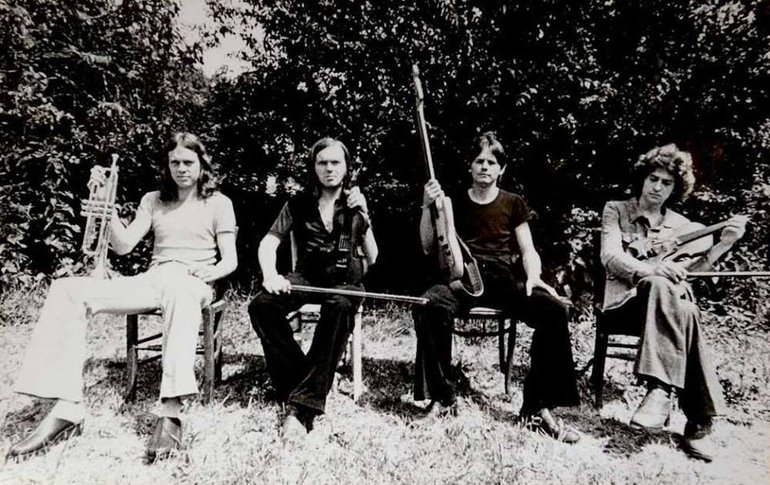
“I was completely independent in my choice of music and theme”
Where and when did you meet Stane Sušnik? How was the collaboration on Radio Študent? What kind of experience was that? What kind of music did you play? Were you autonomous in your work?
I met Stane Sušnik in 1974, when I won a prize game on Radio Študent for the craziest name for a rock band. Stane Sušnik, who was an editor at Radio Študent and the biggest authority in the field of rock journalism in our country, presented me with a record of his choice. When I came to look for it on Radio, Stane told me that they have a lot of records in the archive from the then newly formed company Virgin Records. Promotional copies of all the records released so far were sent to them by the head of the newly established Virgin Records label Richard Branson, after Stane visited the company in London. Unfortunately, all these records were more or less lonely on the shelf, because none of radio journalists at the time, including him, were much involved in such music (Henry Cow, Hatfield and the North, Gong, Faust, Egg, Gilgamesh, et cetera). Given the style of music on the record I chose for the award and our conversation, he suggested that I have my own weekly radio show in which I would feature these records and also other non-commercial and experimental music, as I already had quite a few albums of this kind at the time. I accepted the proposal, of course. So I got a show I called the Untergrunt molekula [Underground Molecule]. In it, I represented lesser-known unconventional rock music, ranging from the Canterbury scene, krautrock, avant-rock, electronics, to more inventive progressive bands. I was completely independent in my choice of music and theme. I also reviewed current records of experimental rock in Tolpa bumov [top albums], and later every Monday I selected the entire daily playlist on the radio. This set of music and other contributions was called Kameleonov ponedeljek [Chameleon Monday]. We had meetings within the music department, but they were only of a coordinating nature and not in the sense of bringing the selection of music a little closer to the tastes and wishes of the listeners. There was a very pleasant and friendly atmosphere on Radio Študent at that time, and after the broadcasts, our colleagues went to Katrca [nearby restaurant] for a beer, and Stane Sušnik and I also visited jazz concerts in Graz (eg Oregon), where Stane had such a connection that we didn’t have to pay an entrance fee. Otherwise, the then editor Jože Vogrinc soon gave me a press card, with which I was able to attend concerts for free. In addition to this show, I also presented alter rock by thematic sections (eg krautrock, French progressive rock, the American underground scene) at Disko Študent and several times at the Veli Jože club of Istrian students. Later, in parallel with the emergence of the RIO association, I started writing about this kind of music for the aforementioned Slovenian magazines and newspapers, and with the mediation of Igor Vidmar [a Slovenian punk ideologue and concert promotor] I also got a show on another program of The National Second Program of Radio Ljubljana, where I had previously chosen music for the late Tomaž Gorenc’ shows. After the Rock and Opposition Association (RIO) was founded, I started again, after a short break, with a show on Radio Študent, this time under the name Rock v opoziciji [Slovenian translation for “Rock in Opposition” expression], which was dedicated exclusively to RIO and related music.
“A movement or collaboration of like-minded European bands and artists who were frustrated by rock restrictions and the music industry’s unwillingness to support their radicalism”
How did the RIO association come about? Who were the key international actors? Where was the first concert of RIO bands? When was the Recommended Record established and what was its role?
Rock in Opposition or RIO was a music association that in the late 1970s represented a collective of progressive groups associated with opposing the music industry, unwilling to recognize and support their music because, unlike mainstream pop and rock music, it did not perceive commercial potential.
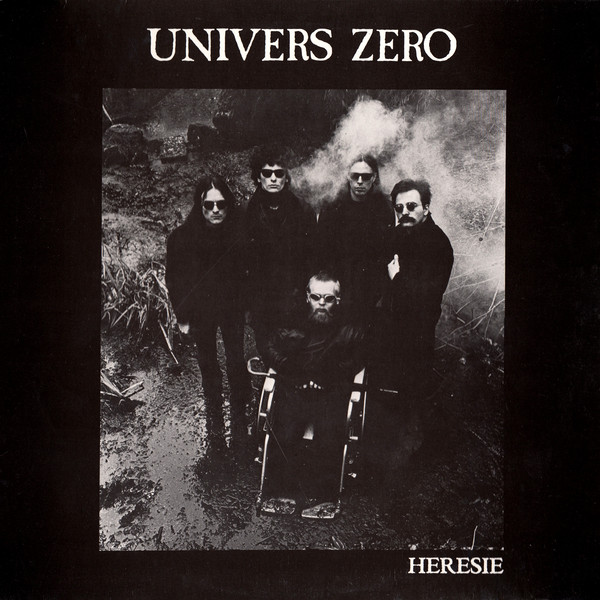
RIO was founded on March 12, 1978, when English avant-garde artists Henry Cow and their manager Nick Hobbs organized a music festival at the New London Theater, for an independent European experimental rock bands under the name of “Rock in Opposition”. This brought together English band Henry Cow, the Swedish group Samla Mammas Manna, the Italian group Stormy Six, the French group Etron Fou Leloublan and the Belgian group Univers Zero. Later the following year, at the Milan Festival, they were joined by Art Zoyd from France, Aksak Maboul from Belgium and Art Bears from England. Although RIO was well received and bands organized numerous concert tours around Europe and festivals, as well as recording and distributing records, the matter died out too quickly, after a few years, due to mutual contradictions and differences (including political ones). Fortunately, however, the activities were transferred to Chris Cutler’s Recommended Records (later ReR Megacorp), which still operates today.
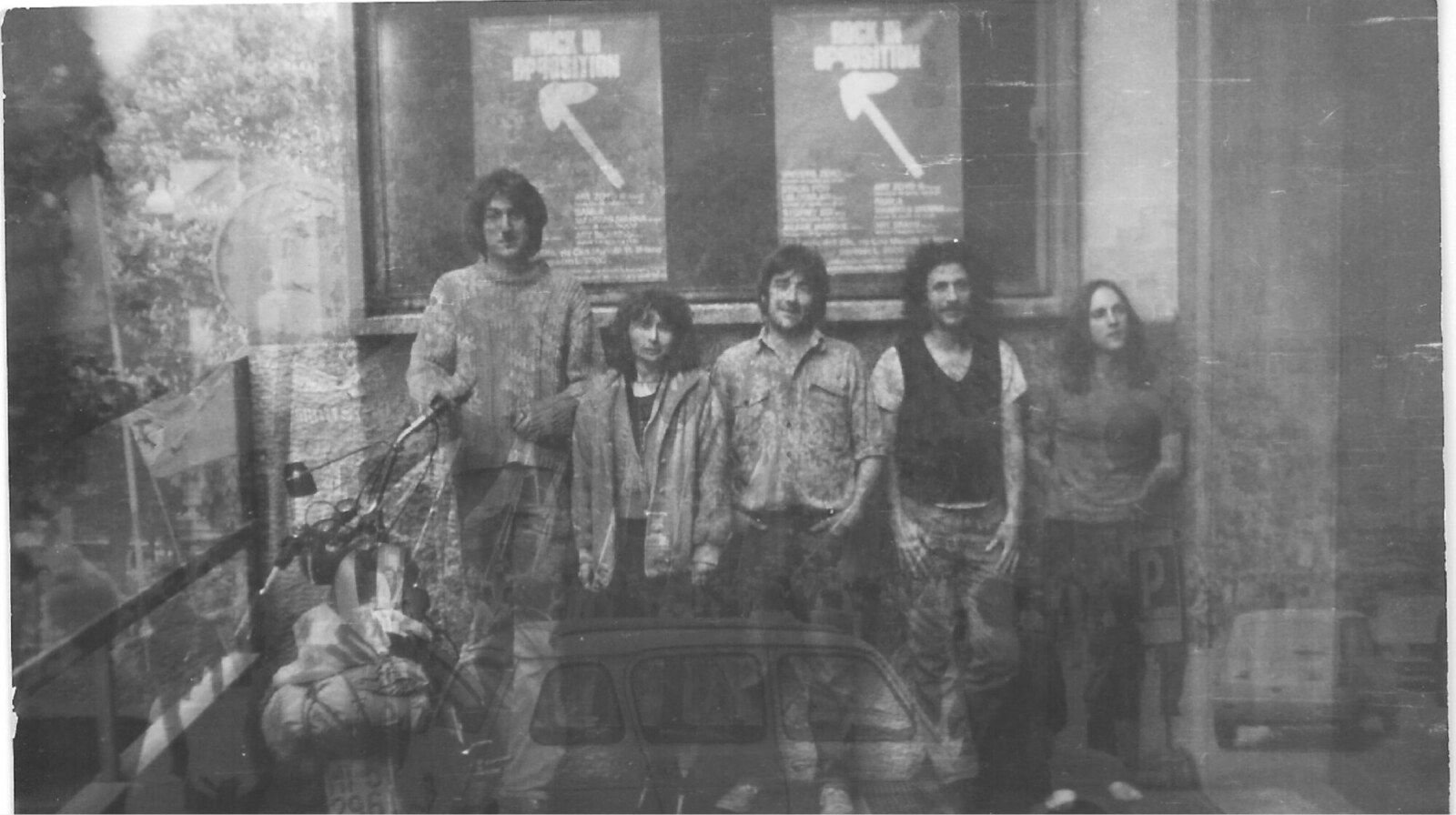
In essence, it was a movement or collaboration of like-minded European bands and artists who were frustrated by rock restrictions and the music industry’s unwillingness to support their radicalism (eg Virgin Records’ cancellation of contracts with Henry Cow and Faust a year earlier). Within the RIO association, they participated in the organization of concerts, tours and festivals, as well as in the distribution of records. Some of the earliest bands in this movement – Henry Cow, Etron Fou Leloublan, Stormy Six – could be loosely described as progressive rock with a more anarchic and confrontational edge, while others – Univers Zero, Aksak Maboul and Art Zoyd – were almost indefinable.
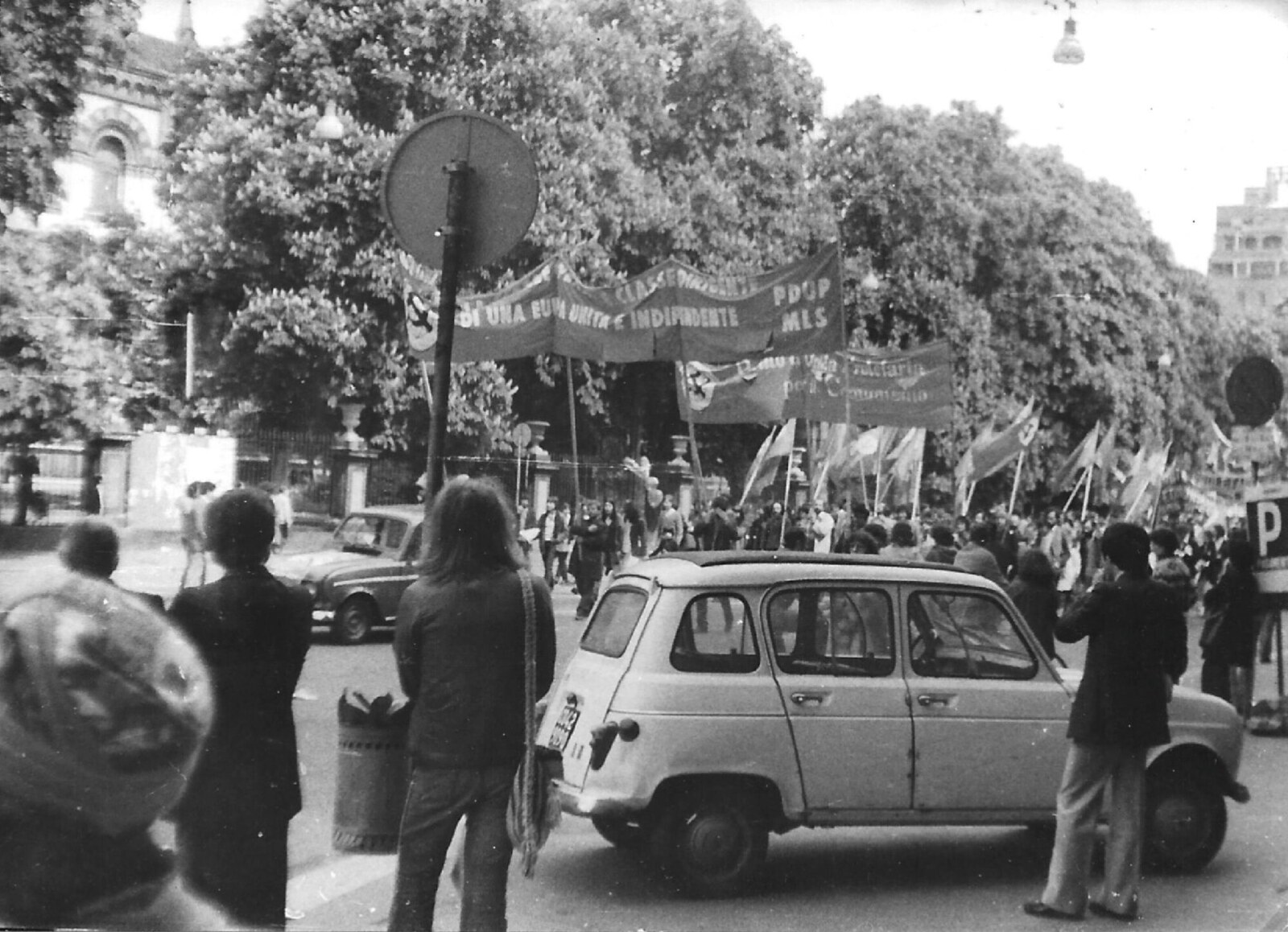
Although the term “RIO” was never used to refer to a particular musical style during the organization’s existence (RIO’s original bands were musically quite diverse), it was used by listeners, musicians, and distributors as a means of classifying a particular subgroup of avant-garde artists. Avant-prog (short for avant-garde progressive rock) is a style that emerged in the late 1970s as an extension of two separate sub-styles of prog rock: the RIO and Canterbury scene.
However, today Rock and Opposition remains as a reference point used by many listeners, musicians and distributors to describe a common approach to the creation and distribution of an eclectic type of music. Music that is difficult to define because it includes progressive rock, improvisation, modern classical or chamber music and very often extreme experimentation, drawing resources from music of different cultures and the use of modern techniques and technologies.
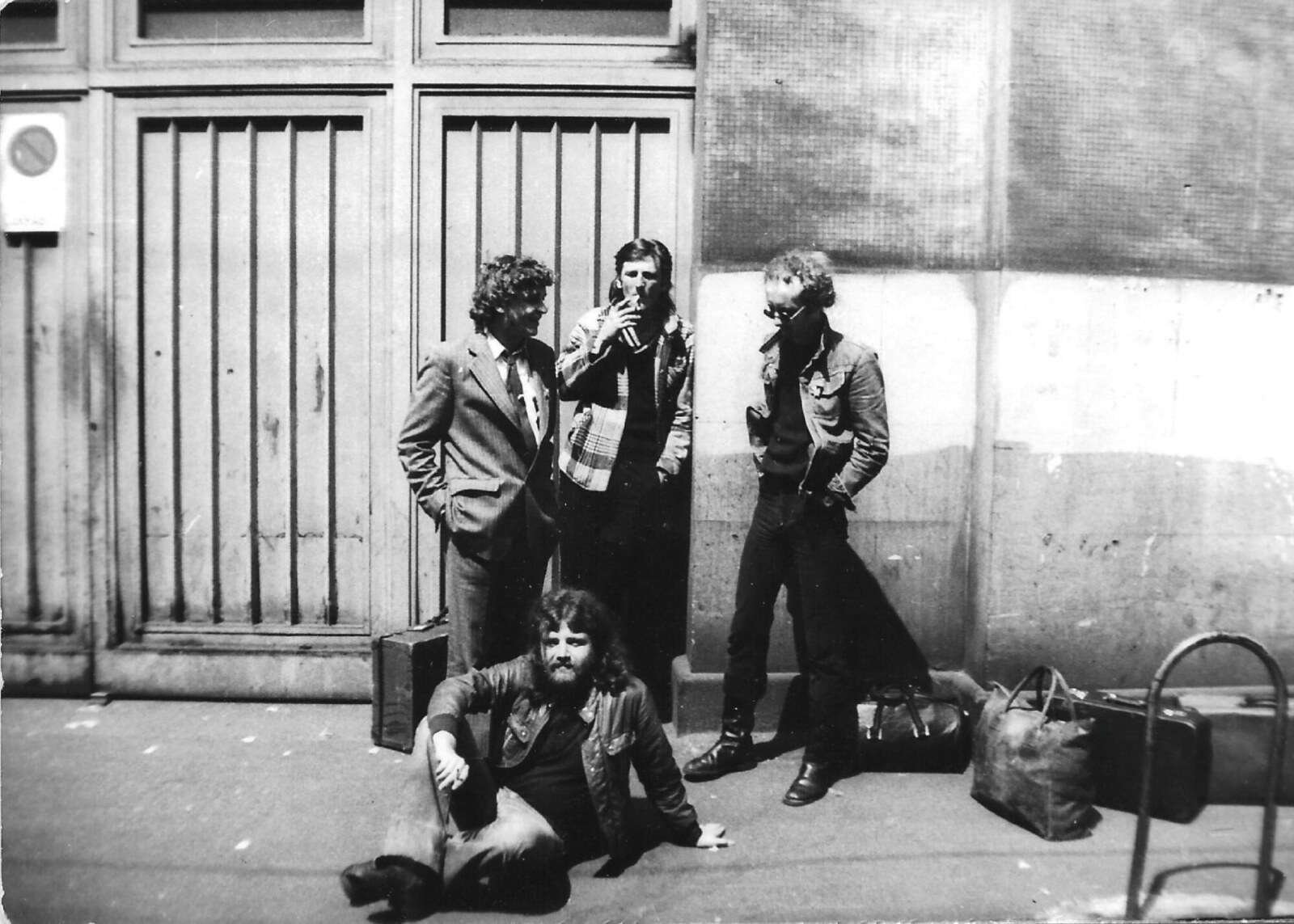
In the years since the founding festival, RIO has grown from a one-off gathering into a movement, an institutional umbrella of all the groups and artists who supported the title idea of the event. And although the increase in bands that use the RIO label on their own means that this has now become a kind of credible subgenre of rock music that encompasses you as well zeuhl music, also a bounced branch of prog formed under the influence of the French group Magma.
Among the related groups that have participated in RIO festivals and concerts across Europe or have also been included in the distribution within the Recommended Records label are Present, Work, Cassiber (formerly Der Linksradikale Blasorchester), Vortex, Picchio dal Pozzo, Pataphonie, Upsalla, Albert Marcoeur, Heratius, Debile Menthol, This Heat, Black Sheep.
Towards the end of 1978, Chris Cutler, the founder and one of the active participants in RIO, founded Recommended Records (RēR), an independent record label and distribution network for RIO and similar artists. When RIO collapsed as an organization, RēR continued its work by representing and promoting marginalized musicians and groups. RēR has become a virtual RIO and is part of RIO’s permanent legacy. Among other things, they distribute records by artists such as Magma, Faust, The Residents (up to the ‘Eskimo’ album, which also featured Frith and Cutler), The Muffins, Begnagrad, Decibel and Conventum. They have also released numerous albums and CDs, from Henry Cow, Faust, Art Bears and News for Babel and the Japanese After Dinner, to the Slovenian experimenter Borut Kržišnik.
“The bands that performed there impressed me so much that I promised them that I would organize concerts for them in Yugoslavia”
From the promoter of alternative music, you eventually took over the role of organizer of RIO concerts in our country [Slovenia]. Can you briefly describe the events between 1980 and 1982 (Rio 80, Festival Hall 81, Križanke 82)?
The most important was my participation in the second RIO festival, organized by Stormy Six and their label L’Orchestra, which took place between 26 April and 2 May 1979 at the Teatro dell’Elfo in Milan, Italy. All seven groups performed, the original four (minus Henry Cow) and the three new groups I mentioned in the previous answer. During the festival, RIO members met formally again, as they had the year before at the Sunrise studio in Kirchberg, Switzerland, to discuss the way forward. Despite some constructive discussions, however, disagreements arose between the groups (particularly between the radical left-wing Stormy Six and the more non-political Univers Zero) over the role of the RIO, and the matter remained unresolved. Two more RIO festivals took place in Sweden and Belgium, but no new meetings took place, and by the end of 1979, RIO as an organization “quietly died out”.
I was invited to the festival by Stormy Six. Samo Ljubešić (from later bands Borghesia, D’pravda and Lolita) also attended. They put us in a Roxy hotel, along with all the performers of the festival. The bands that performed there impressed me so much that I promised them that I would organize concerts for them in Yugoslavia. In the week I spent with the musicians, I got to know everyone personally and started to arrange their concerts in Ljubljana. RIO bands didn’t have managers and similar businessmen, due to non-commercial music and in this connection also due to lack of money, these parasites did not stick to them. My favorites were immediately the bands Univers Zero and Art Zoyd, which seemed to me the most inventive and original of all.
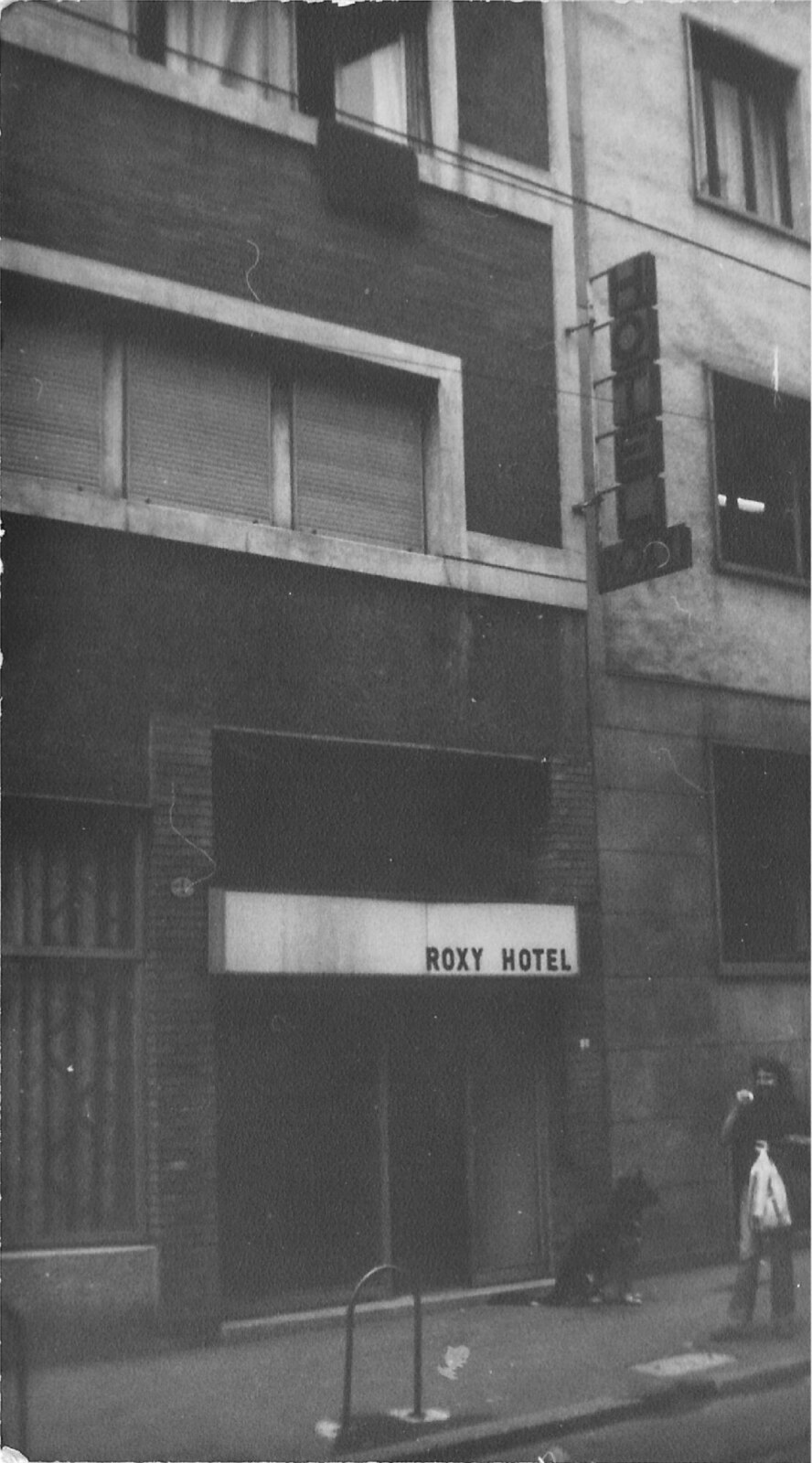
Due to the organization of the festival, I began to work intensively with the Student Cultural Center (ŠKUC), especially with their manager Zorko Škvor. As ŠKUC did not have the funds to finance the music festival, I applied to the Cultural Community of Slovenia for funding for the organization of the festival and individual RIO music concerts. Given the political situation in our country at the time, I pointed out in the application that it is a left-wing musical political movement with a Marxist sign, with high artistic potential, and some band members are politically engaged and even members of communist parties in their countries (eg Stormy Six)… With this, I convinced the apparatchiks in the cultural community that they had really allocated us some extra funds for the RIO events, also for the following years. We expected most of the funds from the tickets sold or the entrance fee, which made me even more active in publicity and the presentation of this music in the media. I already told musicians in Milan about the lower prices for concerts, as we are a non-profit student organization that operates mainly on the basis of enthusiasm. In addition, we saved in various ways to leave more finances for the concerts. We often provided accommodation for bands in private flats, for example. The Work and Black Ship spent the night with Zorko Škvor, Etron Fou Leloublan with Bratko Bibič and Embryo and Checkpoint Charlie with me. We also took care of the logistics and pasted posters around the city, as well as security and ticket sales. During the second RIO festival in Križanke, I even had to take violinist of Art Zoyd for dialysis at clinical center.
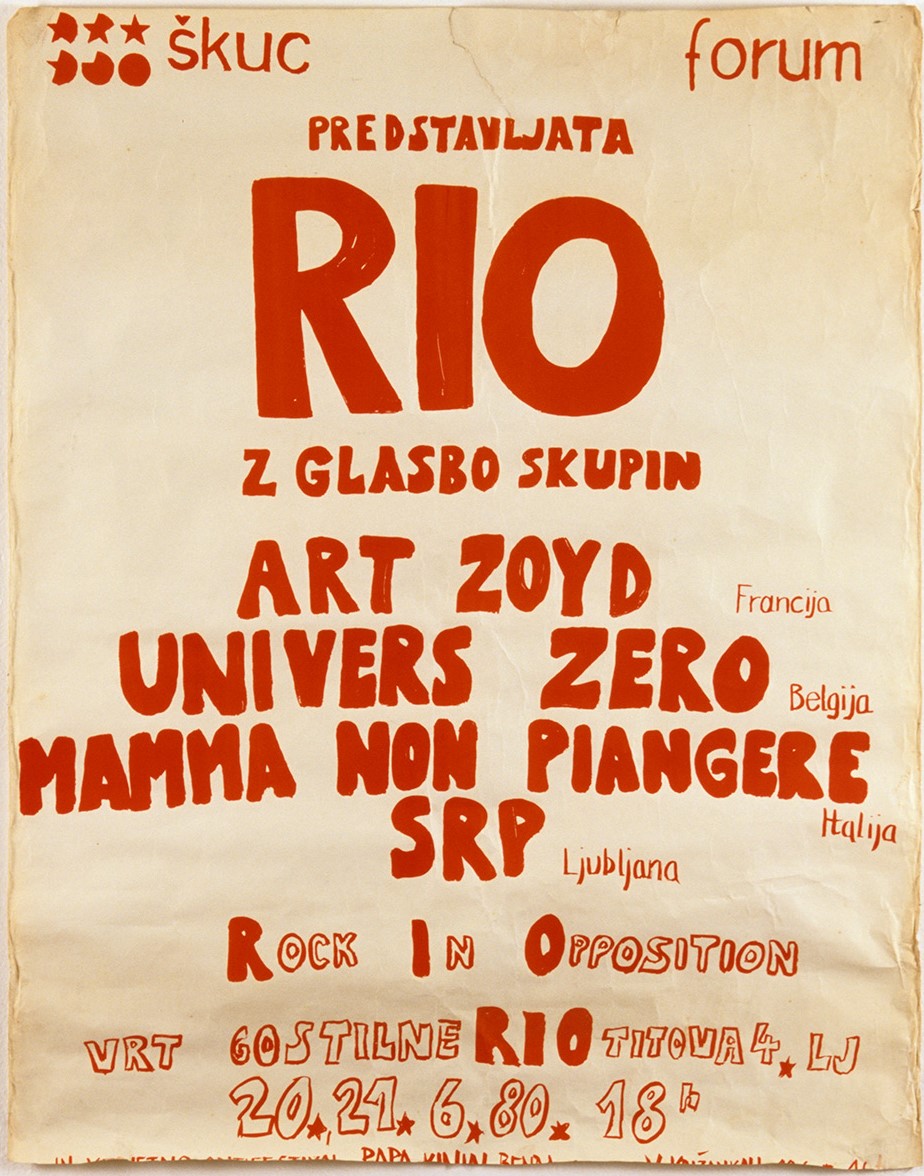
The first Rock Festival in Opposition in Ljubljana took place two years after the founding Rock and Opposition Festival in London, in the spring of 1980, and lasted for two days. It was held at the garden [terrace] of the RIO Inn in Ljubljana. The venue was an ideal choice, both because of the name of the tavern, which covered the name of the movement, and because of the place of the event in the very center of Ljubljana. Srp from Ljubljana [Slovenia], Mamma Non Piangere from Italy, Art Zoyd from France and Univers Zero from Belgium performed. The festival was a success despite the occasional rain, as the venue was almost filled. It was a shame that Begnagrad didn’t play. They hadn’t yet fully reformed. They were successfully replaced by Srp, who at the time played a rather improvised chamber acoustic music, quite close to the then RIO groups. However, the music of that time was unfortunately not released on record. Mamma Non Piangere were a substitute for Stormy Six who did not fit into our financial scheme. Univers Zero and Art Zoyd were as phenomenal as usual. In addition to Stormy Six, Present and Picchio dal Pozzo were in the game at the time. However, this would be too much of a financial bite and it didn’t work out.
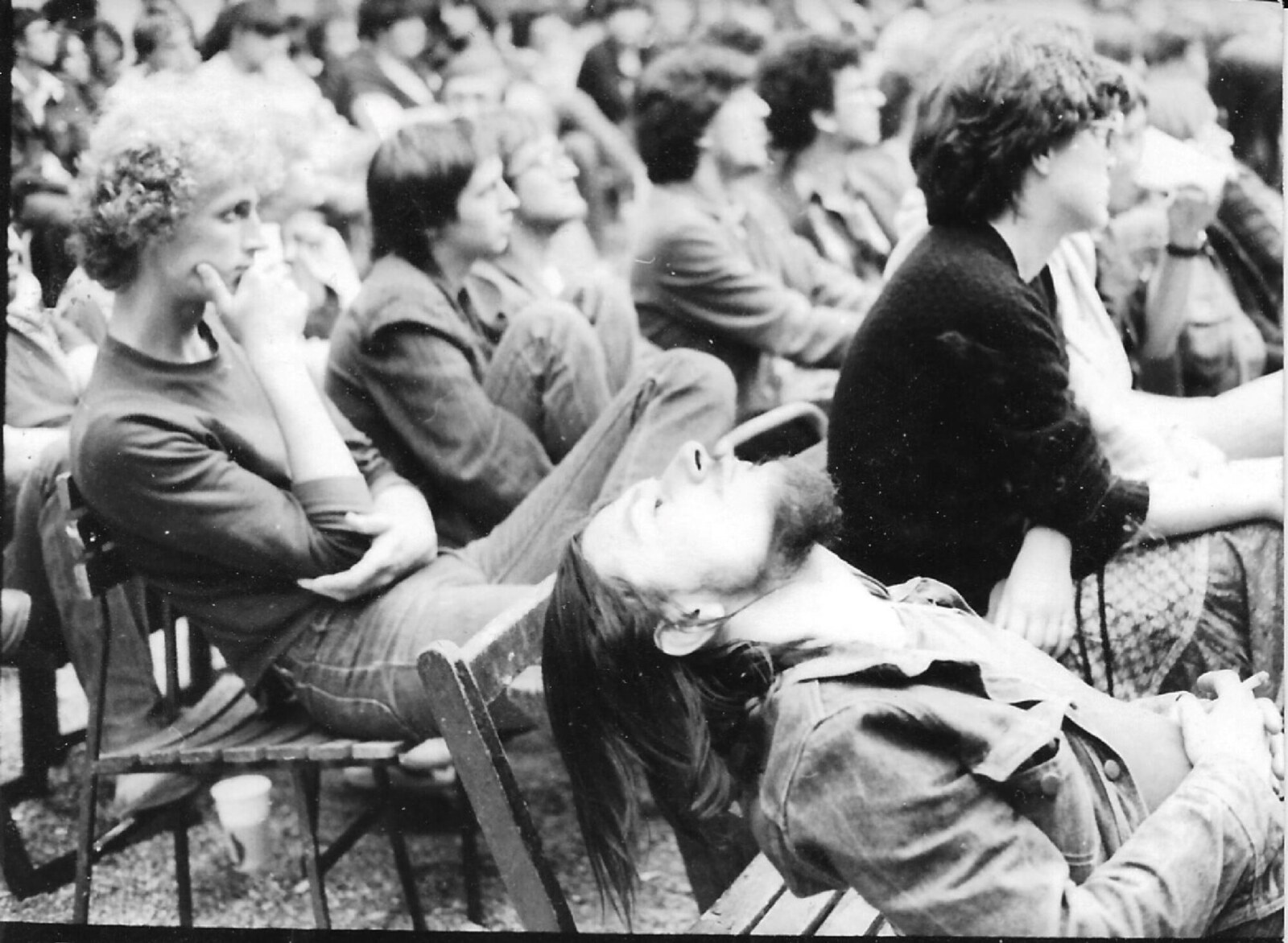
Due to the lack of finances, only Slovenian groups participated in the second Rock in Opposition Festival [1981], in the Festival Hall of Gospodarsko razstavišče, which lasted for a day: D’Pravda, Srp, Begnagrad, Istranova and some other projects.
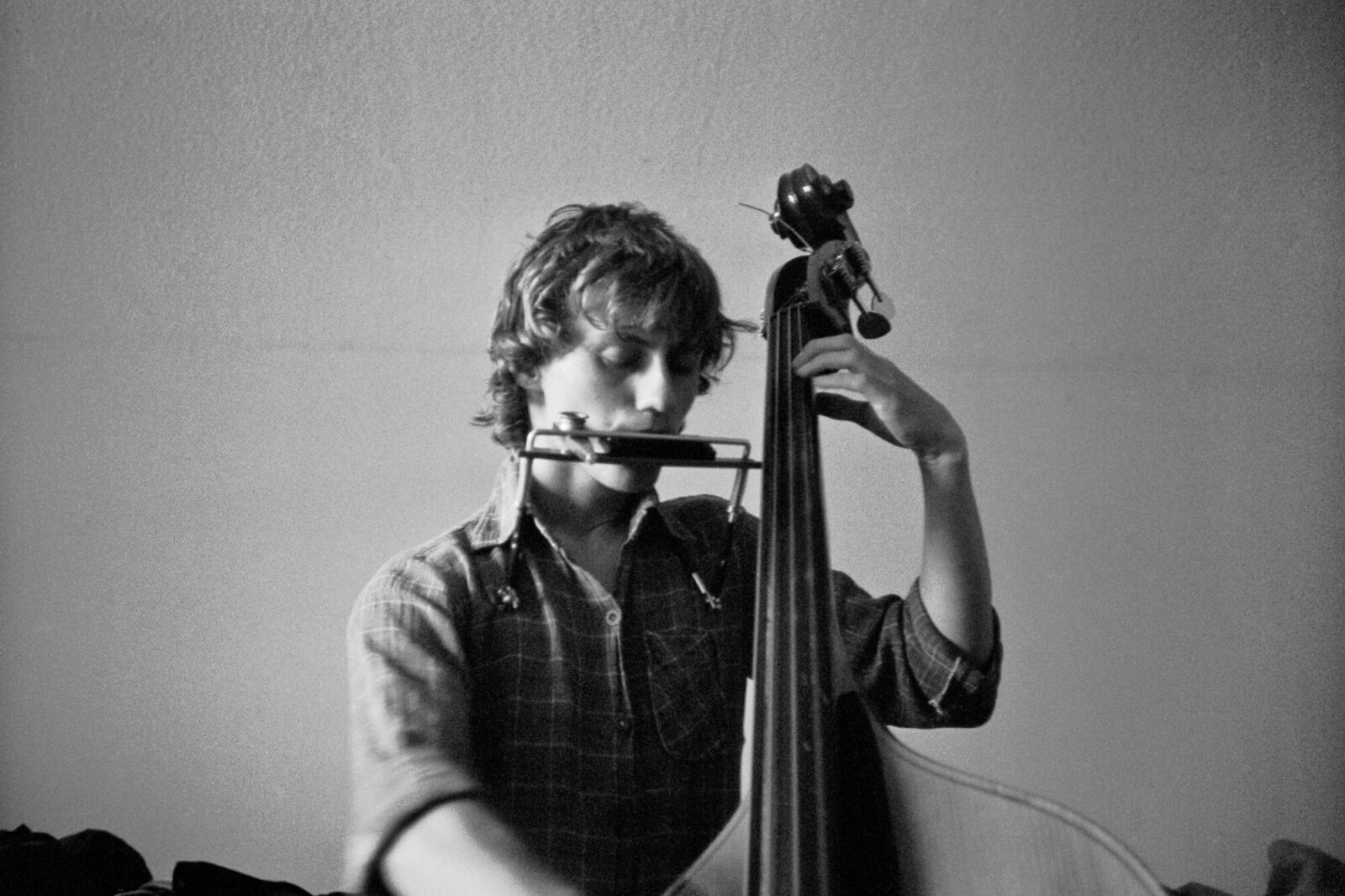
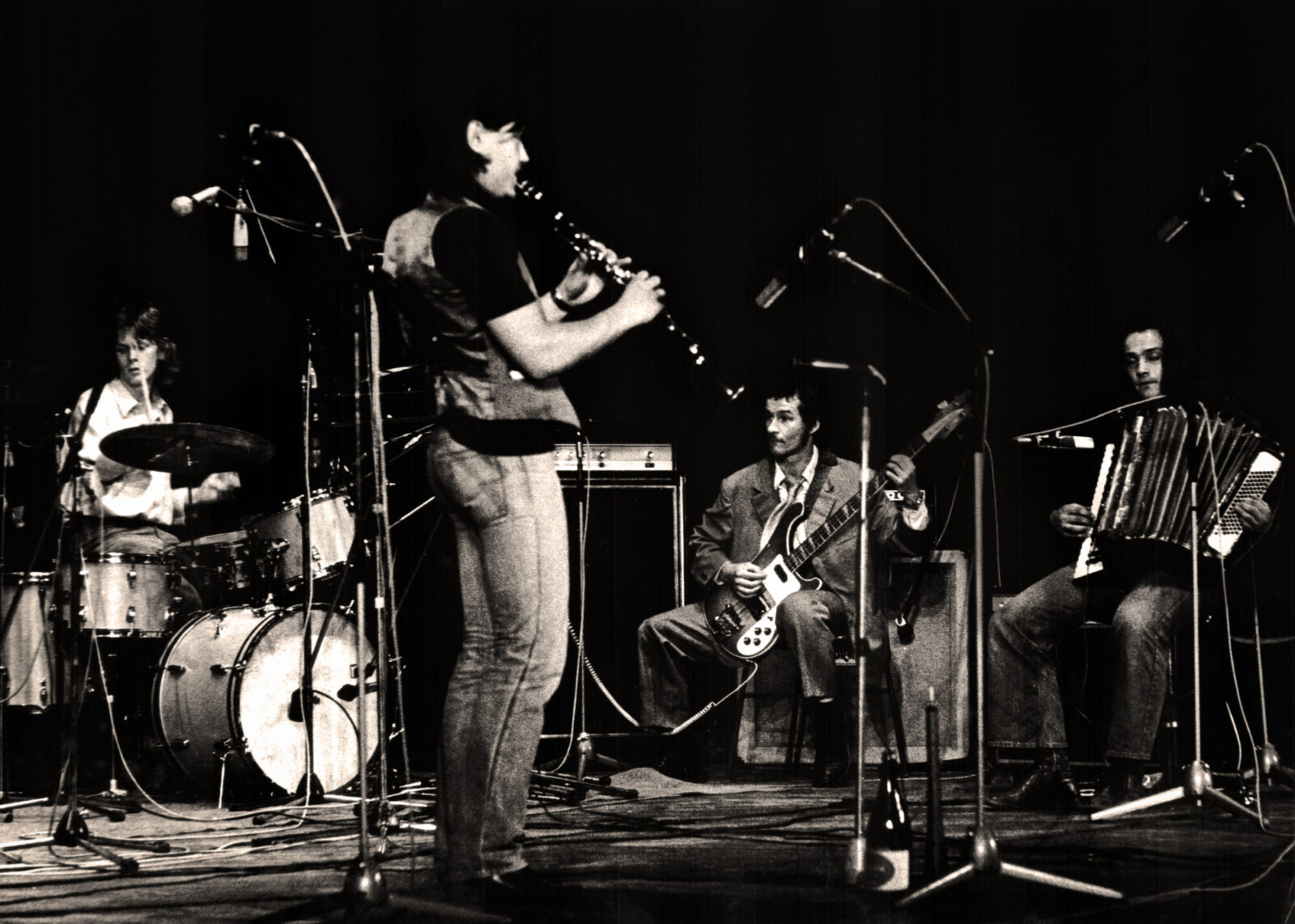
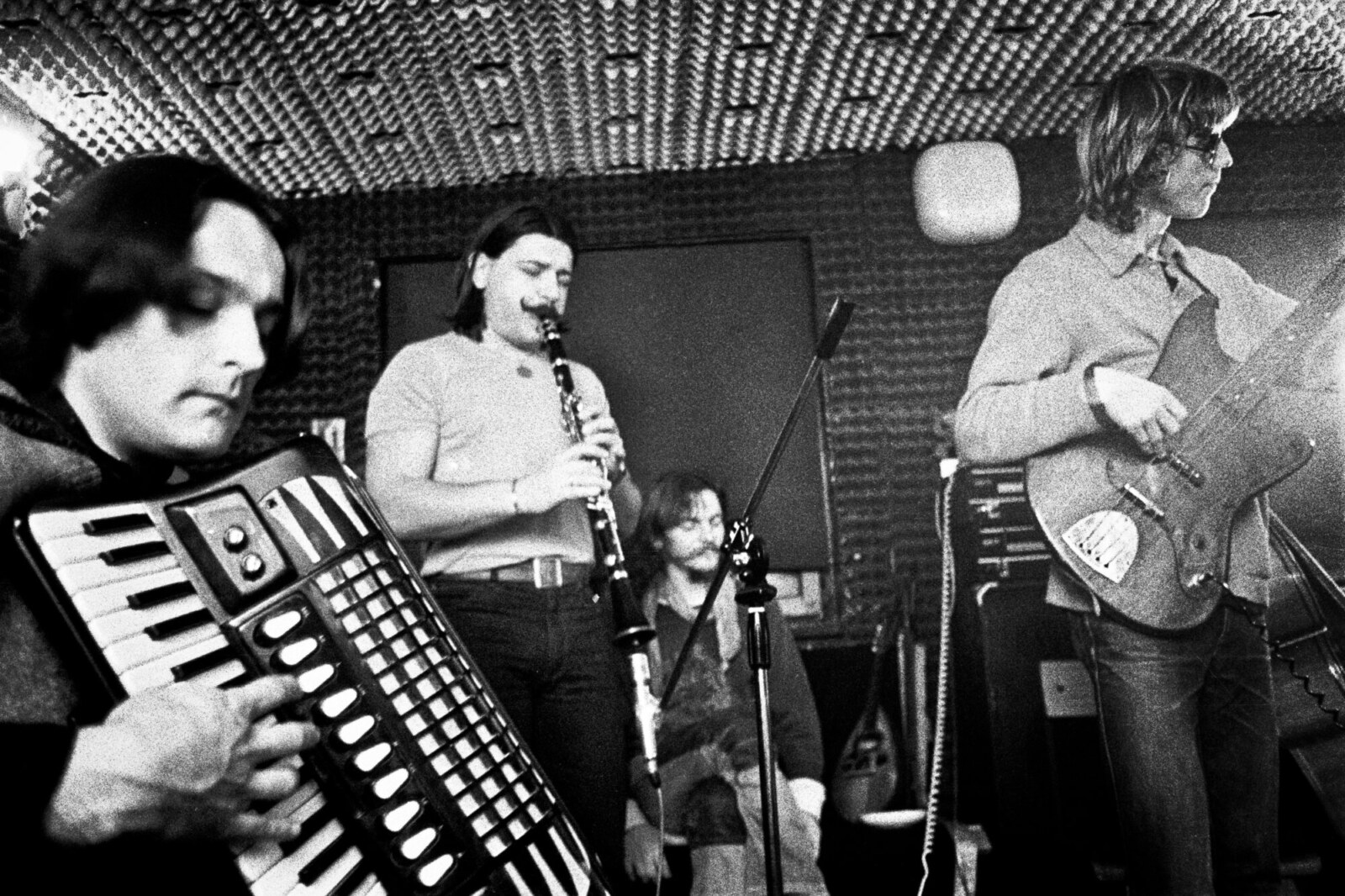
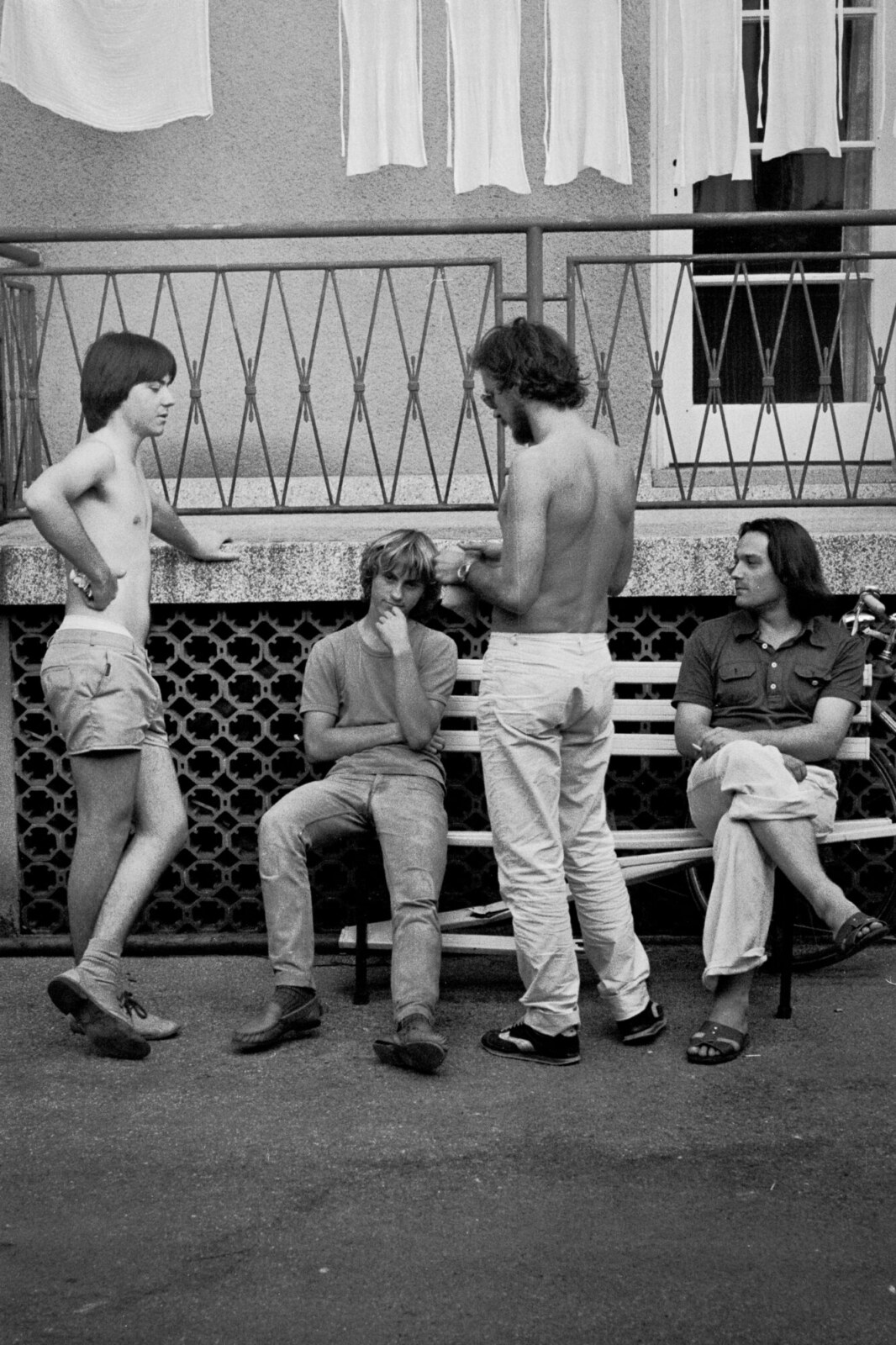
Art Zoyd (France), Black Sheep with Chris Cutler (The Netherlands), Circus Janus [this was not a musical group, but a kind of Dutch street theater brought by Black Sheep. They performed separately from the music groups on the second day in the morning], Nekropolis of Peter Frohmader (Germany) Laibach (Yugoslavia), Begnagrad (Yugoslavia), Andrea Centazzo (Italy), D’Pravda (Yugoslavia). This Heat was still in the game at the time, but as before, it didn’t work out. Beside and between these festivals, we organized individual concerts until the end of 1982 or a little later. Bands like Etron Fou Leloublan, Guigou Chenevier, Ferdinand Et Les Philosophes, Hellebore (all from France), Havadia (Italy), The Work (UK), Cassiber (Germany), Fred Frith (UK), Skeleton Crew (USA), Camberwell Now (ex This Heat, UK), Debile Menthol (Switzerland), Wondeur Brass (Canada). I probably haven’t mentioned everyone. There were probably some others. Some of these groups, which played in Ljubljana, also played in Zagreb and Belgrade with the mediation of local student centers.
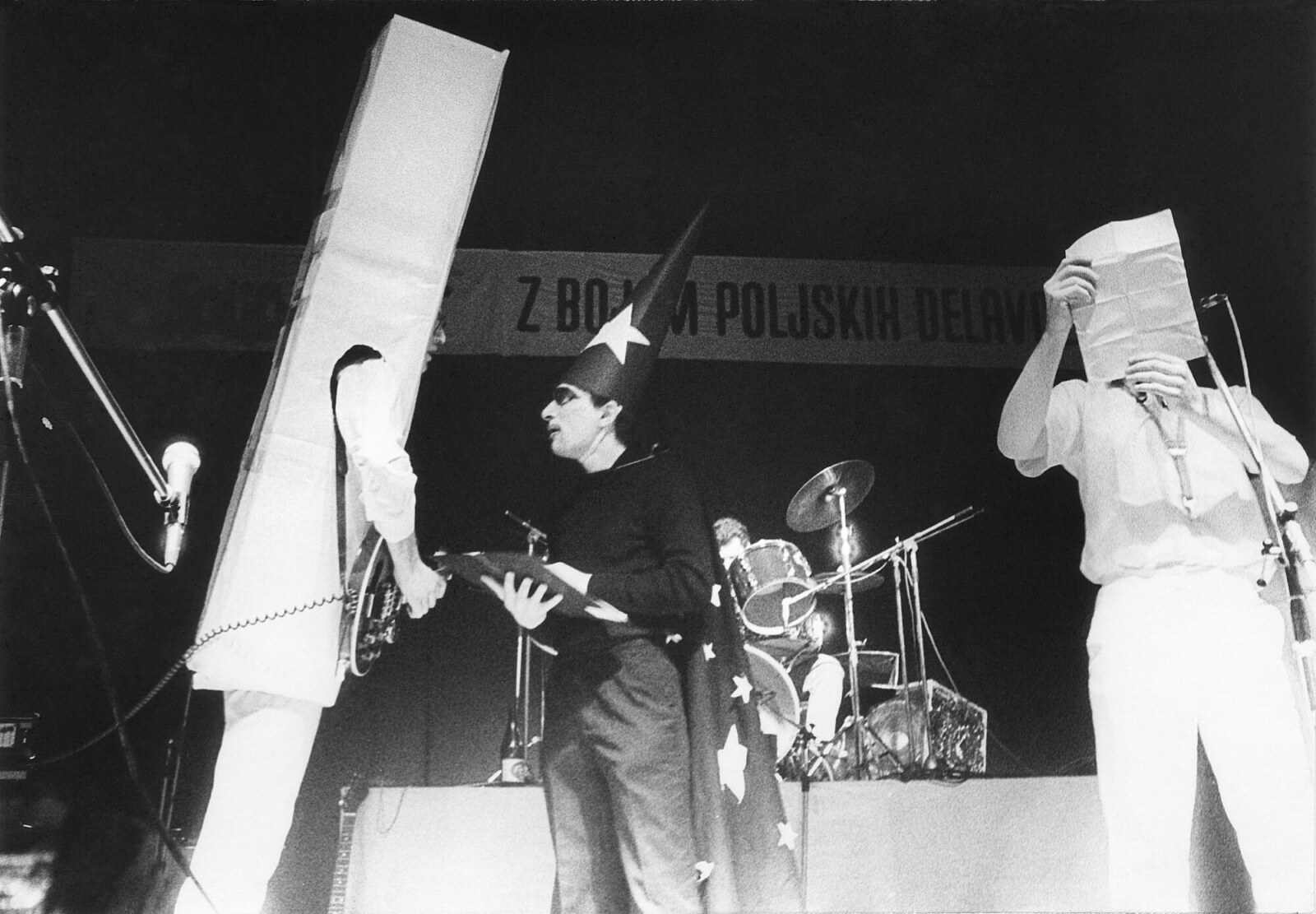
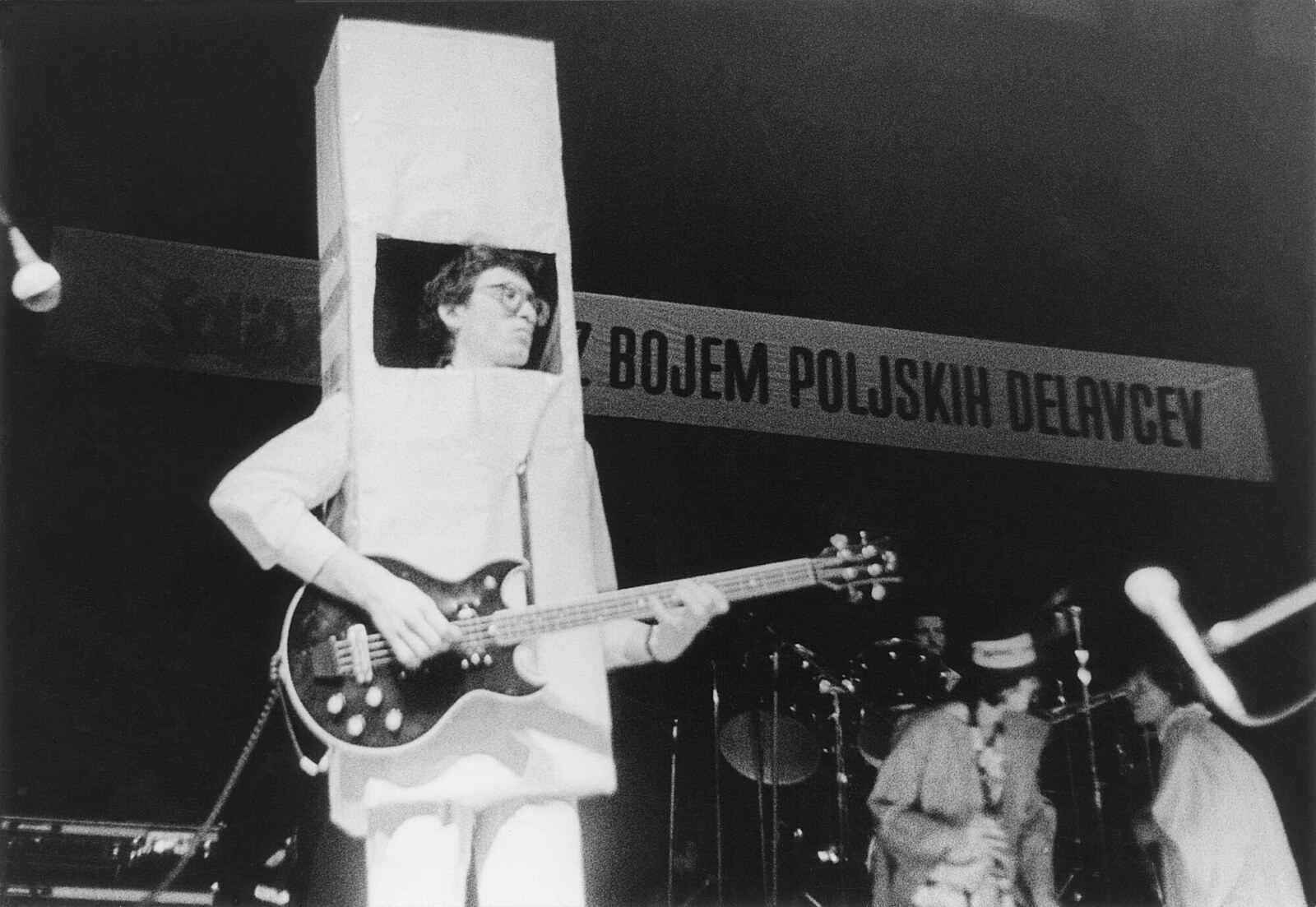
Who were the other actors and co-organizers in our country? What were the most important domestic venues of RIO music?
Apart from me, Zorko Škvor was the most involved in organizing the concerts. He did this in the capacity of being the curator of ŠKUC, which was the formal organizer of the concerts. As well as a fan of this kind of music, as he drummed at D’Pravda. I mainly negotiated with the band, and he took care of the financial execution and renting the premises. Bratko Bibič also cooperated a lot and helped with guidance. In addition to the RIO Inn and Križanke, the main venues for the concerts were the Festival Hall, the Pioneer Home and the canteen in the student dormitory in Rožna dolina.
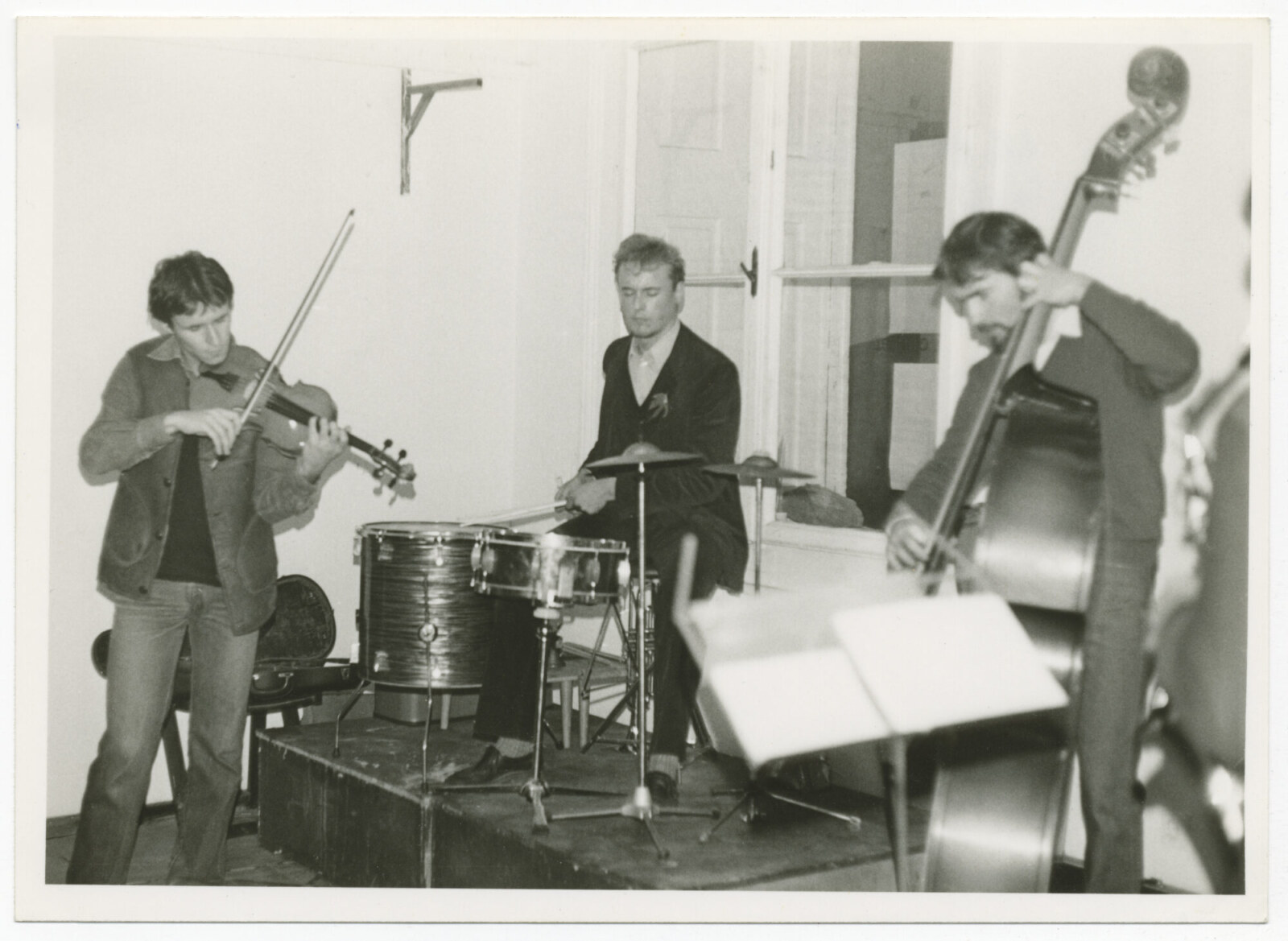
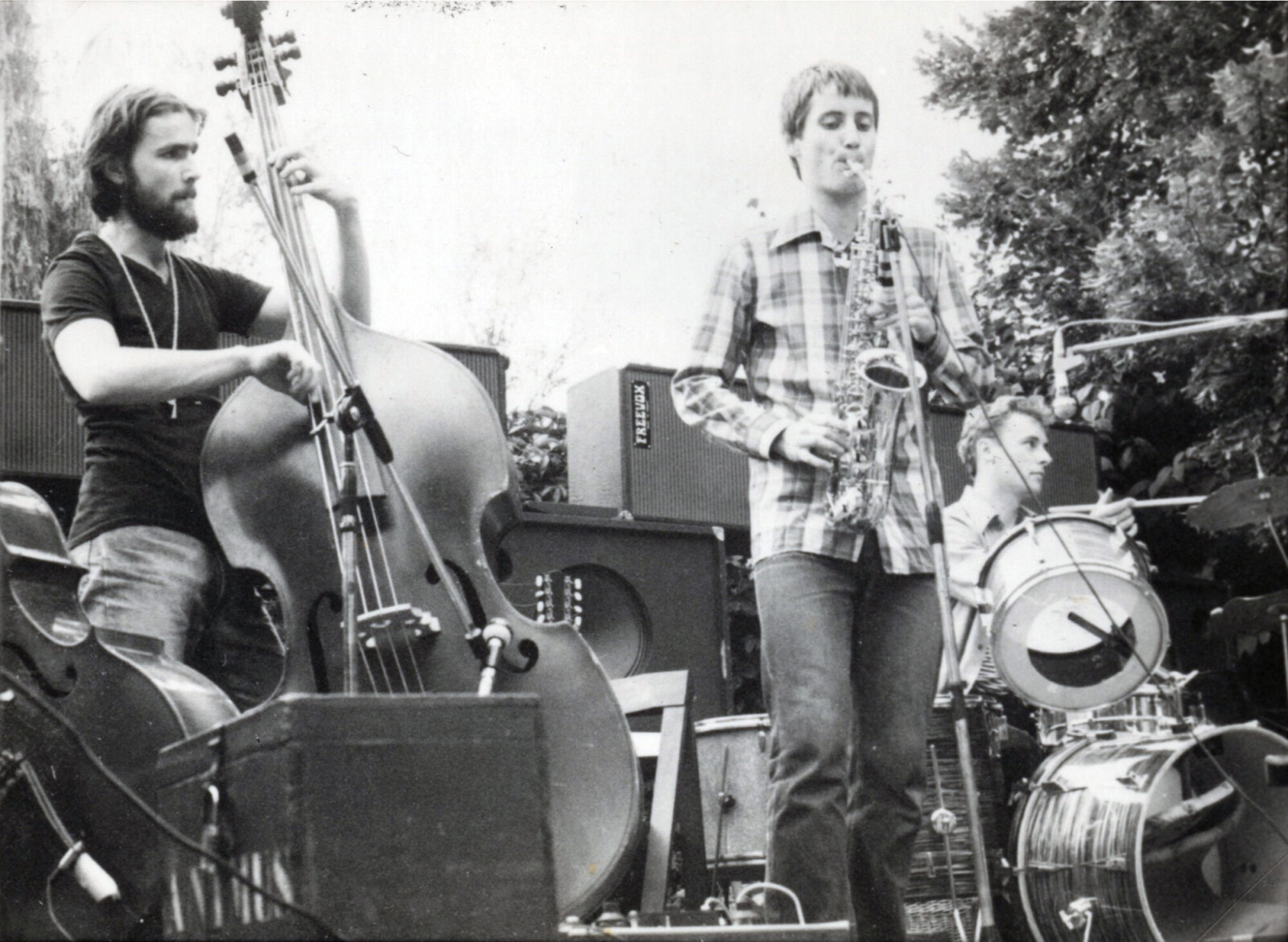
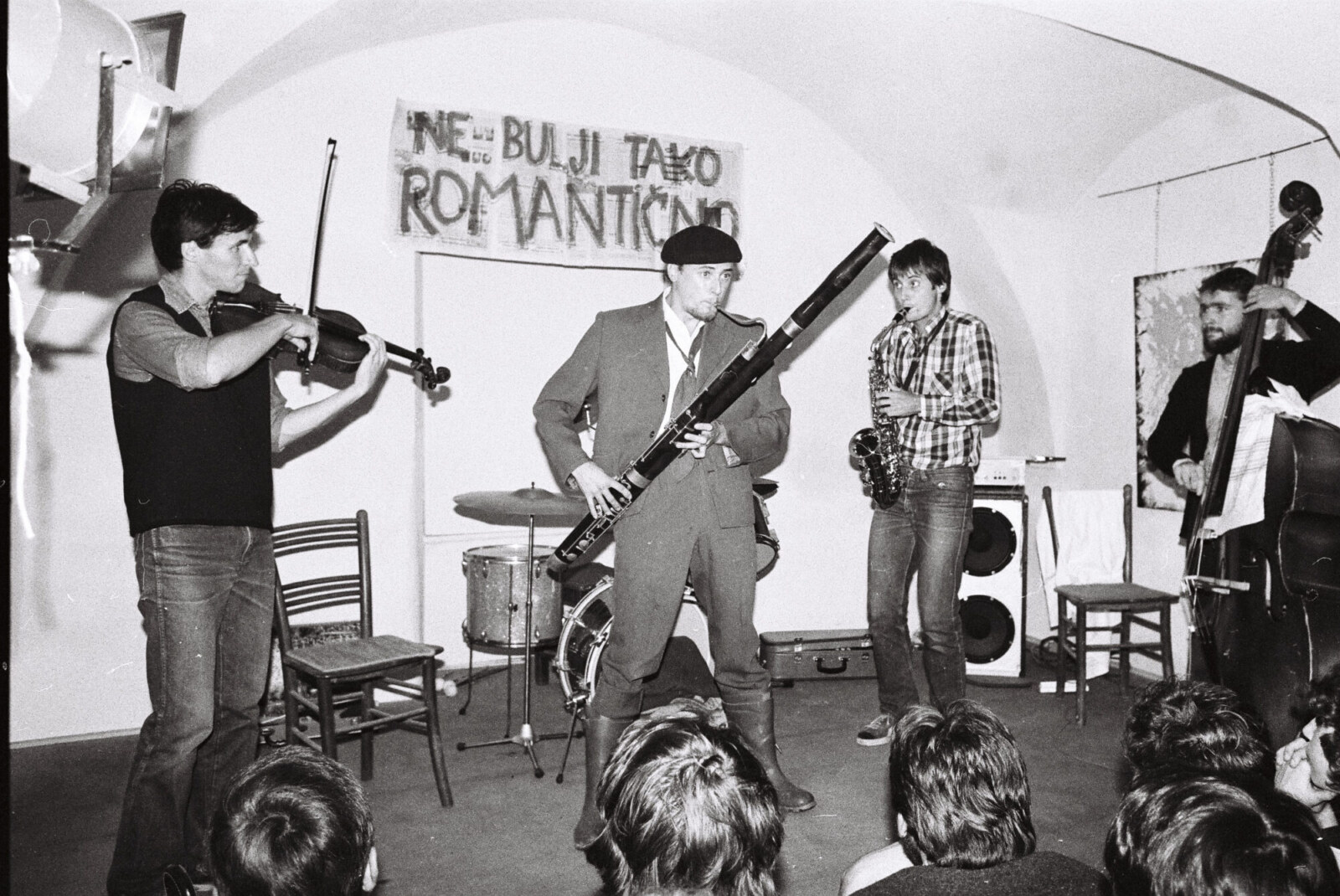
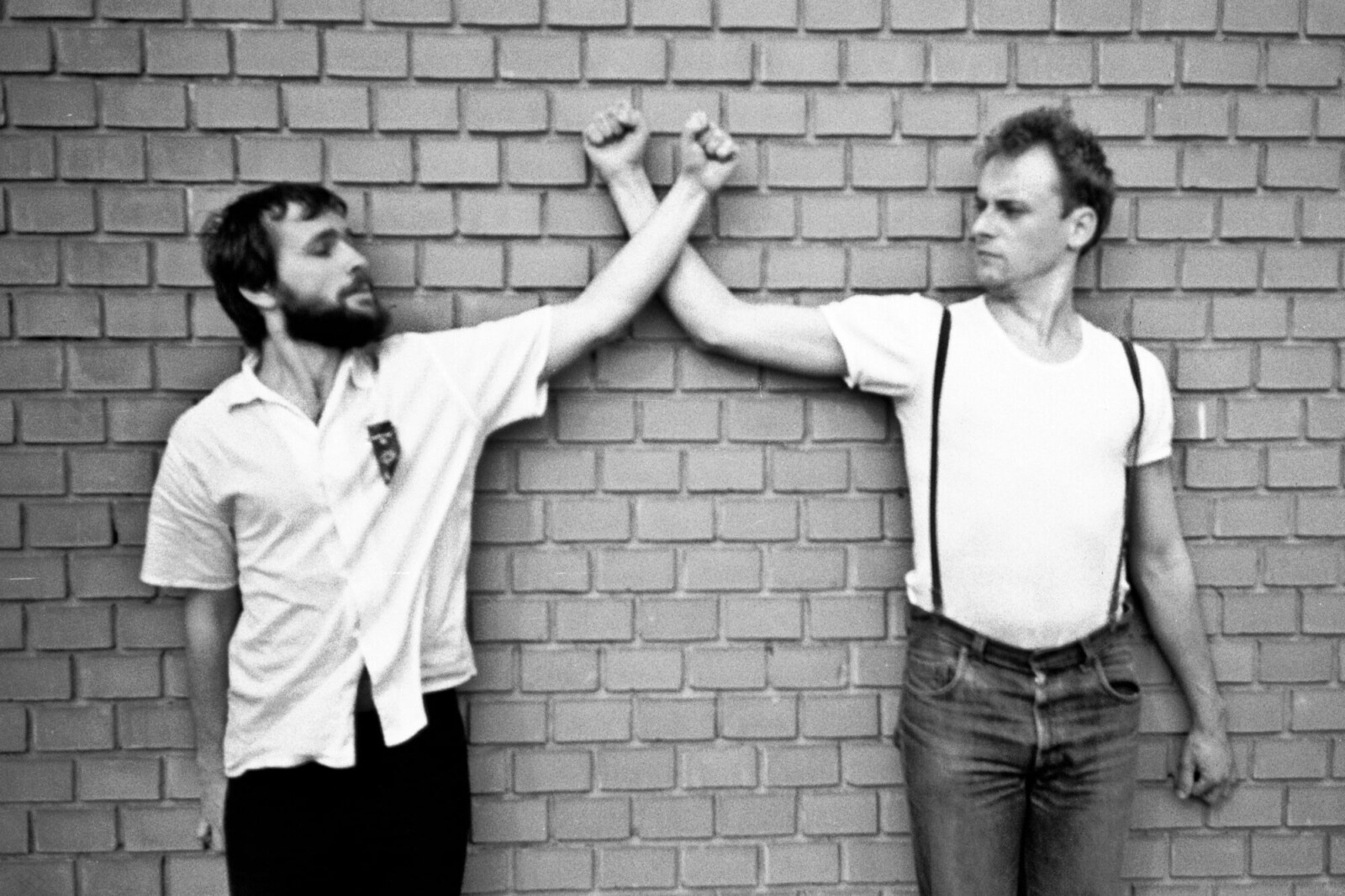
Igor Vidmar recently spoke on RTV Ljubljana in the PROFILE show (January 22, 2021) on the occasion of his life anniversary. Among other things, he claimed that his first international concert, Siouxsie and the Banshees, was offered to him by Zorko Škvor. What is the background to this story?
Once in May 1981 (I remember that because I had a birthday at the time) a guy called me home and said that he got my number by my old acquaintance Nick Hobbs, a former manager of Henry Cow. He introduced himself as the manager of Siouxie and the Banshees and asked if I was interested in organizing their concert as part of a European tour. He knew that I had organized many rock concerts in opposition in Ljubljana. So I started arranging for a concert.
Manager and I agreed on a good price, considering that I represented an independent student association with modest finances and the concert in Ljubljana would take place between two already agreed concerts in Austria and Italy. Zorko Škvor and I wondered what to do with this band, which is completely different from what we have been doing so far; should we combine it with another RIO band or what? We figured it would be best to organize a separate concert because it just didn’t go along with RIO. Then I was at an event or meeting in the ŠKUC gallery, where I was called by a Siouxie representative and Vidmar, who was also present, heard it. He asked me which band we were talking about.
When I told him it was Siouxie and the Banshees, he became very interested and asked me if I would leave this concert to him. “Yes of course!”. This concert was only a burden to me, this kind of music (punk) did not appeal to me due to its rudimentarity and dilettantism, with rare exceptions such as Pere Ubu and Chrome. By the time he jumped in, everything had already been arranged except the venue and if anyone else would be performing besides Siouxie. Vidmar and I went to Pero Lovšin [singer in punk group Pankrti] in Kodeljevo, where we agreed that Pankrti will play and that there would be a concert in the Sports Hall in Kodeljevo. Vidmar then joined some of “his” punk bands as pre-bands. Thus, Vidmar took over the concert and on June 18, 1981, the first concert organized by ŠKUC R.O.P.O.T. [Vidmar’s concert organization] took place in Kodeljevo. After the concert, there was also a reception for journalists, to which I was invited as a collaborator in the organization. I also attended the event.
I am very surprised that Vidmar did not mention me in the mentioned interview for RTV Ljubljana as an organizer or at least a co-organizer of RIO festivals. Vidmar and I had previously worked together at Radio Študent and he brought me to ŠKUC when I mentioned to him after coming from the festival in Milan in 1979 that I intended to organize a RIO festival and that I was already negotiating with several foreign bands. At the meetings in the music sections at ŠKUC, I kept the members informed about the activities in preparation for the festival so that he was fully acquainted with my activities.
For me, the organization of such a festival and individual concerts, except for a modest financial basis, was not too much of a problem, as I graduated from the Faculty of Law in 1981 and was properly trained. In addition, Škvor and I worked as a team, in which I selected performers, agreed on the price and other conditions for their concerts and took care of publicity, and Škvor was in charge of support, which included administrative tasks such as procuring various permits for concerts from the police or administrative bodies and the rental of concert venues and accommodation of performers. Due to exchange rate differences, the band Art Zoyd was paid a slightly too low fee for their performance at this festival, so their manager contacted me directly and called me on my home phone number so that we could consent. He didn’t call ŠKUC or its curator Zorko Škvor.
In addition to radio broadcasts, you regularly wrote about non-punk alternative music in various magazines, including Stop, Mladina, Nedeljski dnevnik, Delo, Tribuna, Glasbena mladina. These articles provided important information to the general public. The concerts were well attended thanks to your articles.
To promote rock in the opposition, I used all the channels available at the time, printed publications and Radio Študent, and later also the national second radio program.
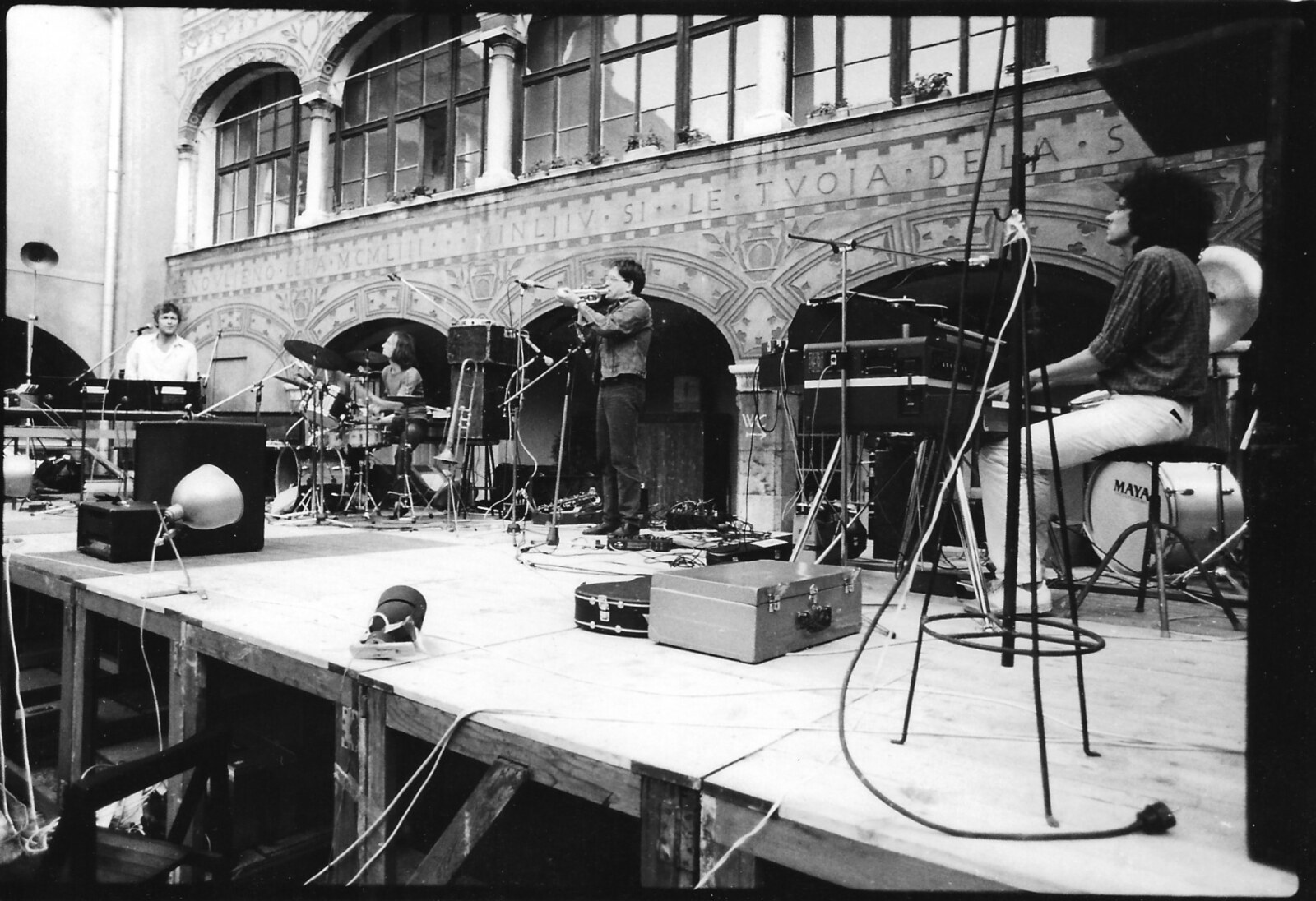
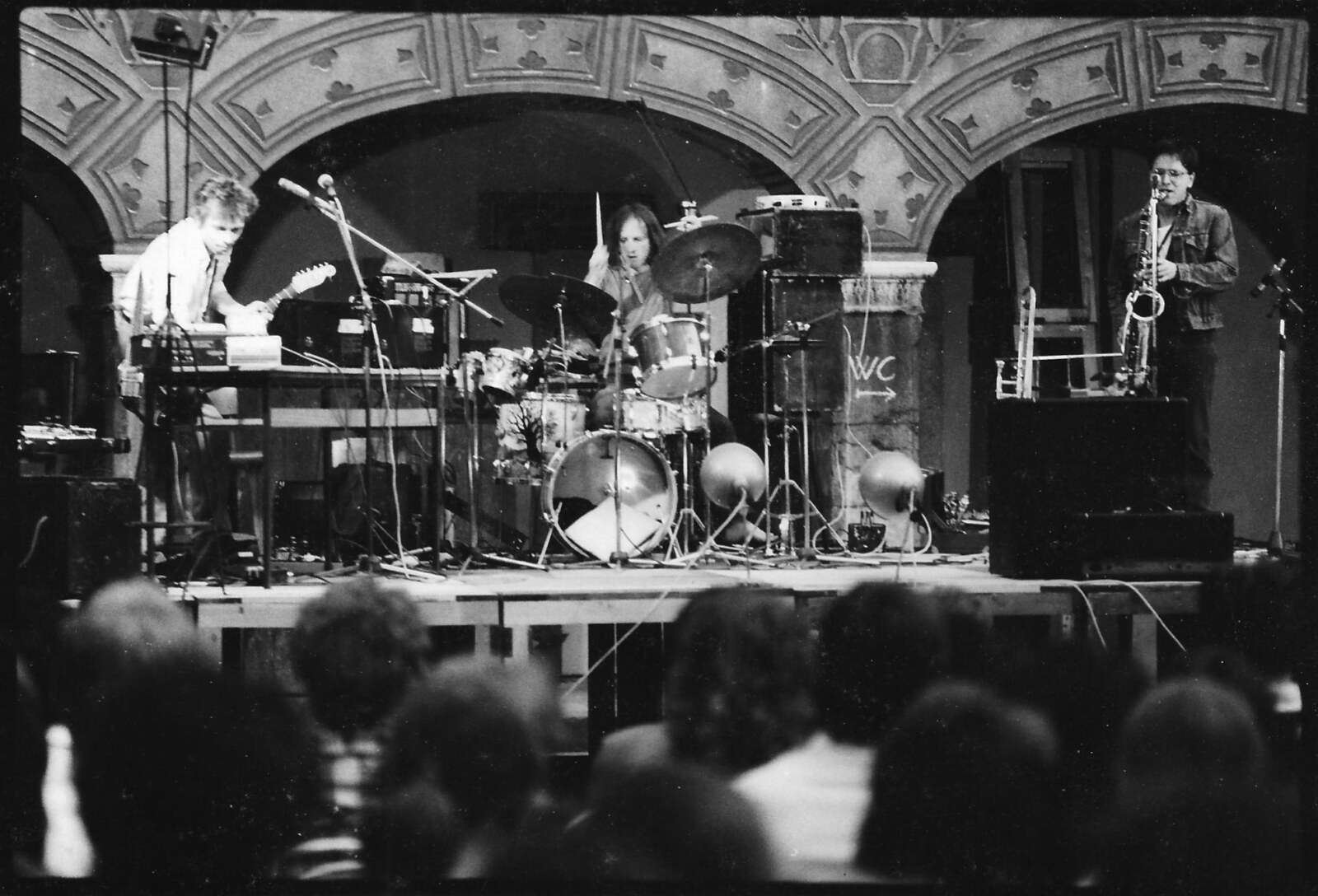
It is probably no coincidence that you also did your first interview with the Laibach group, which came out in Mladina.
I met Dejan Knez, the future founding member of Laibach around 1980 in ŠKUC. Because he was interested in music similar to mine, we often listened to records together. He made tape copies of the ones that interested him the most. I remember among them were This Heat, early Cabaret Voltaire, Metabolist, Magma, Chrome, The Residents. When he went to do military service in Serbia, his then girlfriend used to come to me for cassettes with mostly RIO music. She brought him tapes during visit to the army camp. After he came from military service, he gave me the first cassette of Laibach recordings. He did not want me to give them to anyone to listen to, especially not to Vidmar, who lived in the same single home on Ilirska Street in Ljubljana as Knez, as he didn’t want Laibach to be placed under his wing among punk bands. That did not suit Knez, who was the informal leader of Laibach at the time. However I lent the cassettes, which contained a rather unique electronic noise, to my friend Samo Ljubešić, who on this basis, with a team of Istrian students who took over Disko Študent, organized the first Laibach concerts in Ljubljana at Disko FV.
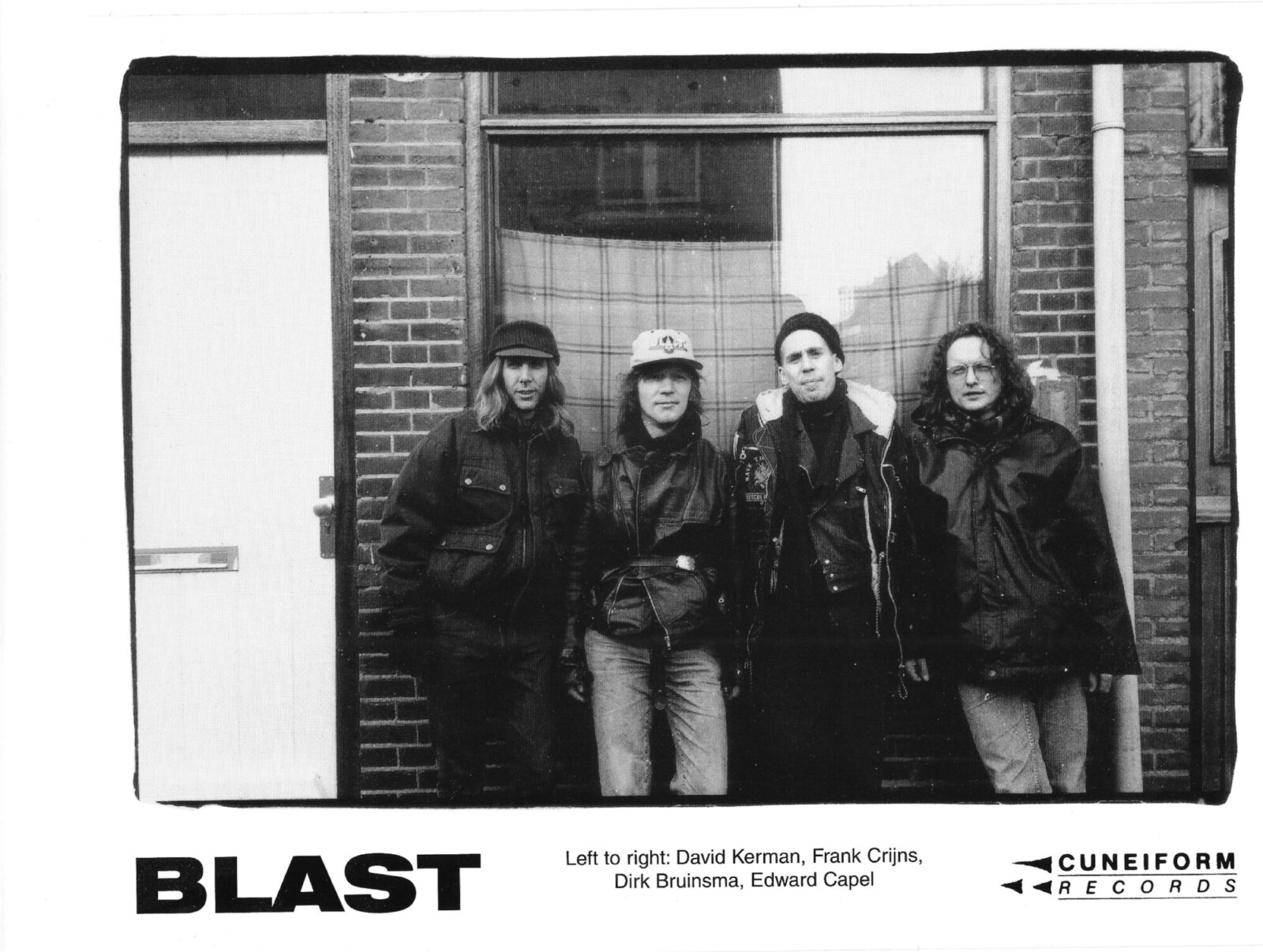
Dejan Knez often performed solo under the name Laibach with an electric guitar processed through various electronic effects. Knez and I also agreed that Laibach in full line up will perform at the third (second international) opposition Rock Festival in June 1982 in Križanke, where they met RIO ideologue Chris Cutler, who performed there with the band Black Sheep under the direction of a former Henry Cow member, Geoff Leigh. Let me tell that Laibach, because they had problems with the instrument at the time, lent the electric violin from Gérard Hourbette, a member of the French RIO band Art Zoyd. After this performance, the editor of Mladina, Bogataj, for whom I was writing at the time, asked me to do an interview with Laibach for their newspaper. I did an interview with Laibach members Dejan Knez and Jani Novak and it was published in Mladina on October 14, 1982 together with provocative Dejan Knez graphics. Laibach also prepared a complete graphic image of that issue of Mladina, a thematic cover and some pictures for interior design… However, the editorial board of Mladina did not dare to publish it. In their opinion it was too provocative for that time, and only an uncensored interview was published. During this time, I also gave Jani Novak many addresses and contacts of various promoters of alternative music, which I obtained during the organization of RIO concerts. Unlike other bands to whom I provided international connections, Jani Novak approached the matter very seriously and enthusiastically and actually connected with the organizers and promoters or sent them extensive audio and visual Laibach promo materials, which certainly paid off later when they did the big jump on the international stage.
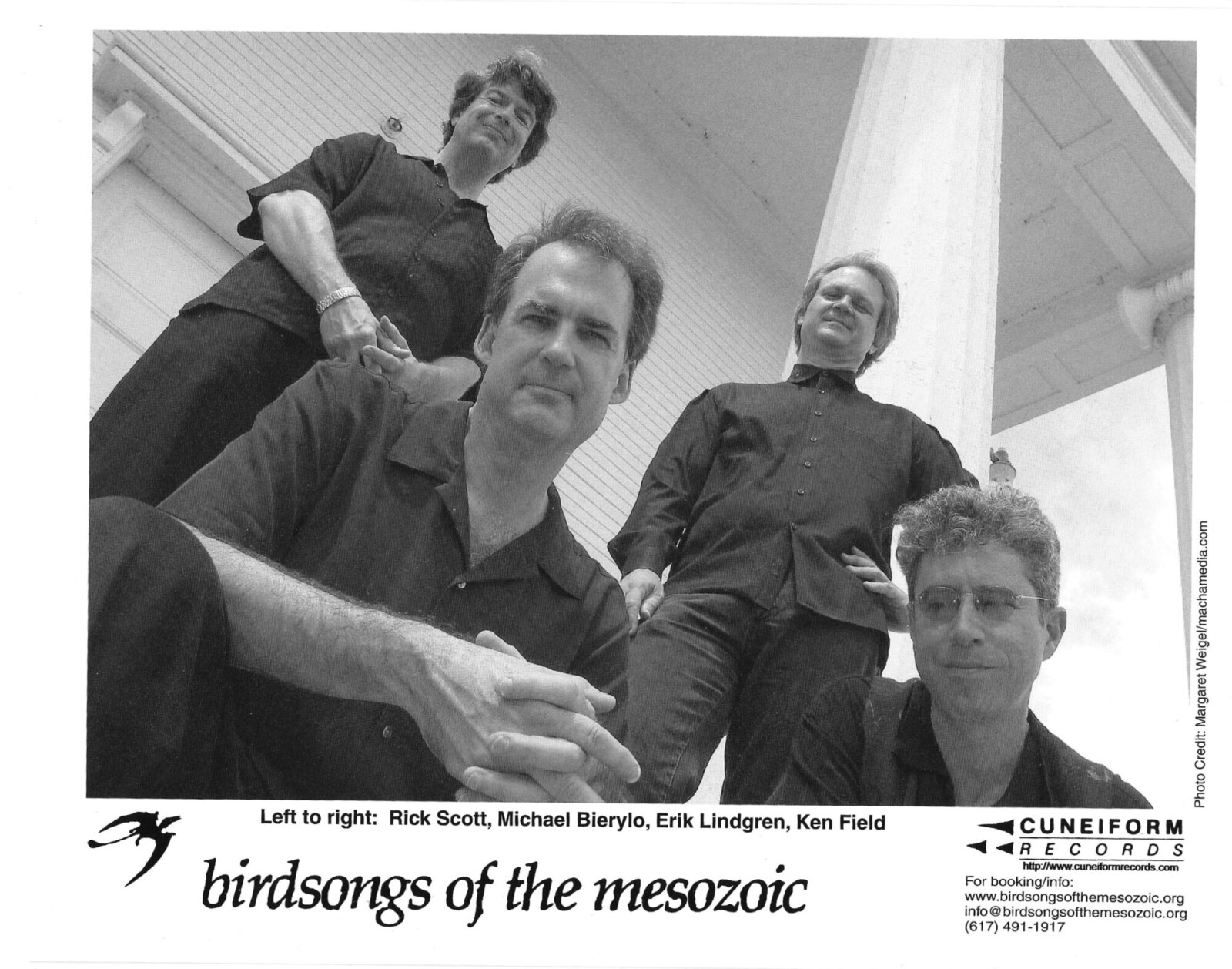
Vidmar claimed on many occasions that Laibach performed for the first time at the second Novi Rock [New Rock] on September 10, 1982, where he covered most of the organizational tasks. This is simply not true, as their first major performance was at the aforementioned Rock in opposition festival, at which Laibach performed on June 2, 1982, in front of about 600 listeners.
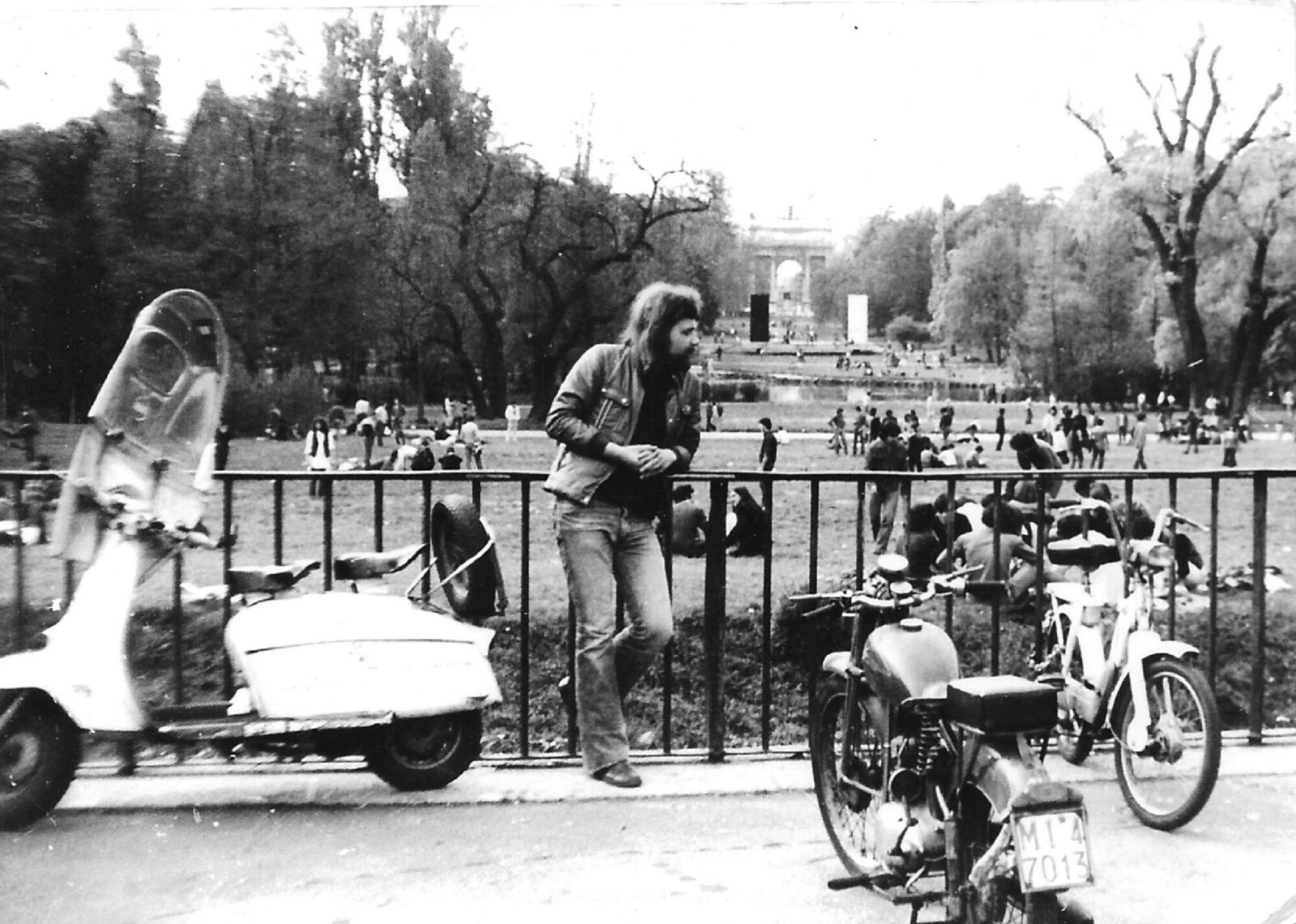
Who are your personal favorites – at home and abroad? Has your taste changed significantly from the late 1970s to the present day?
Of the newer domestic bands, the most interesting to me are Širom, and before that Salamandra Salamandra. Of the old bands, however, I still swear by Salamander, who unfortunately left no recordings behind, Begnagrad, early Srp, and Kapela La Chateliere. I must also mention Štefbet Rifi here, who were the closest of local bands to the chamber branch of Rock in opposition, but unfortunately only released one CD in the 1990s and then disbanded. Among the newer ones on the international scene are the excellent Yugen from Italy, Guapo from England, Thinking Plague, Blast, Birdsongs of the Mesozoic and Far Corner from the USA and Unit Wail, Chromb!, Piniol, Setna, Zwoyld and Vak from France. Of the old RIO bands that are still actively releasing interesting records are, Univers Zero, Present, Aksak Maboul, Picchio dal Pozzo. My taste hasn’t changed much over the years. I still swear by the old loves of Faust, Magma, Univers Zero, Henry Cow, Samla Mammas Manna, This Heat, Art Zoyd.
Tadej Pogačar
Interview with Aleks Lenard was part of P74 Gallery | The RIO exhibition | Tadej Pogačar
Tadej Pogačar, an artist, curator and educator, was born in 1960 in Slovenia. He studied art history, ethnology and fine art at the Faculty of Arts, University of Ljubljana, and graduated in painting from the Ljubljana Academy of Fine Arts, where he also completed his postgraduate studies (1990). From 1994 to 1999, he was the editor in chief of M’ARS magazine (published by the Museum of Modern Art in Ljubljana), one of the leading publications on contemporary art in Central Europe. From 2001 to 2004, he taught at the SCCA Centre for Contemporary Arts – Ljubljana in the Programme for Curators of Contemporary Arts. Pogačar is the founder and director of the P.A.R.A.S.I.T.E. Museum of Contemporary Art. [http://act.mit.edu/]
Tadej Pogačar was also a member of Srp. He played contrabass and bass guitar.
RIO: Begnagrad, Srp, D’Pravda
5 – 24 November 2019
P74 Gallery
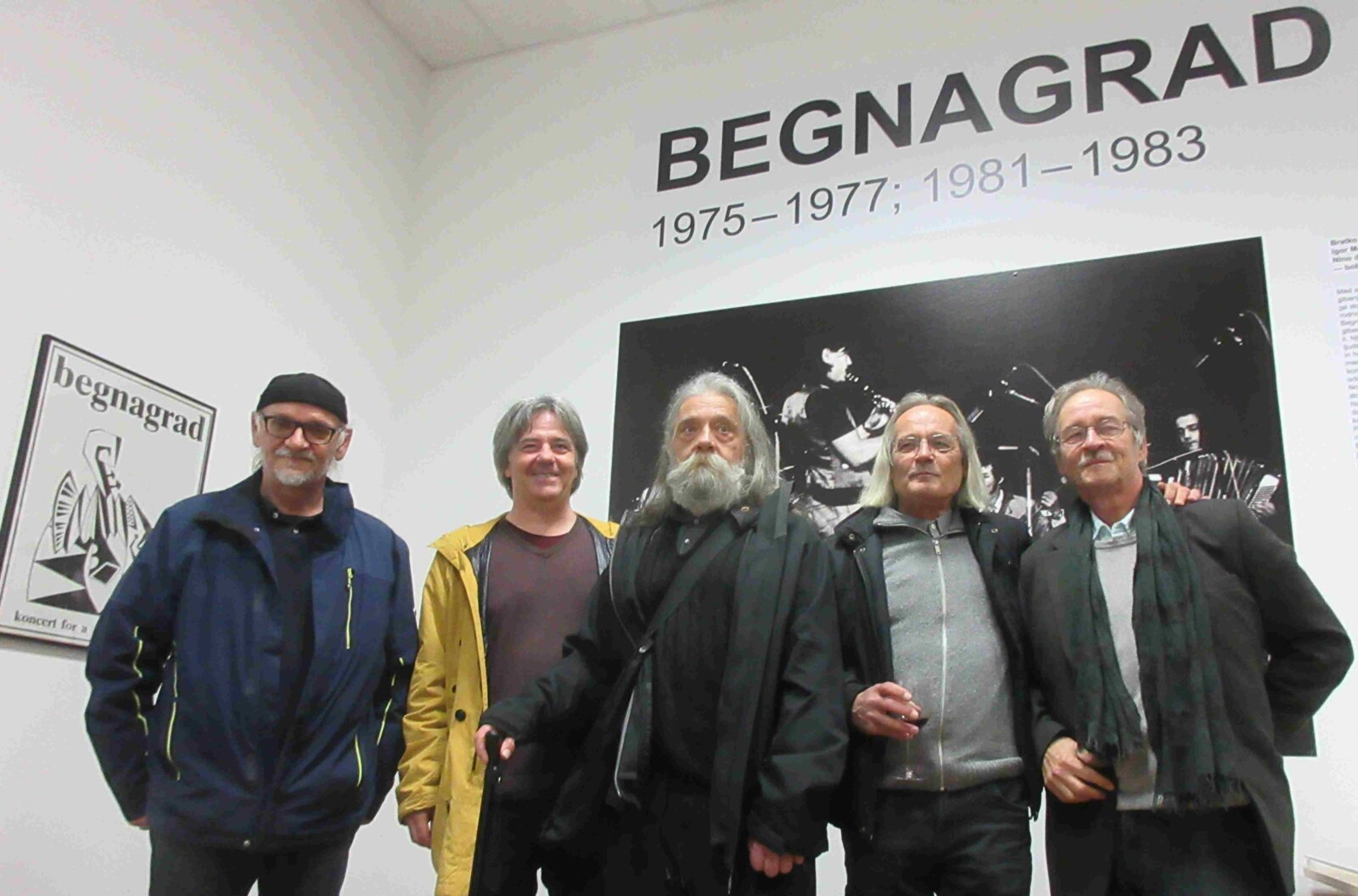
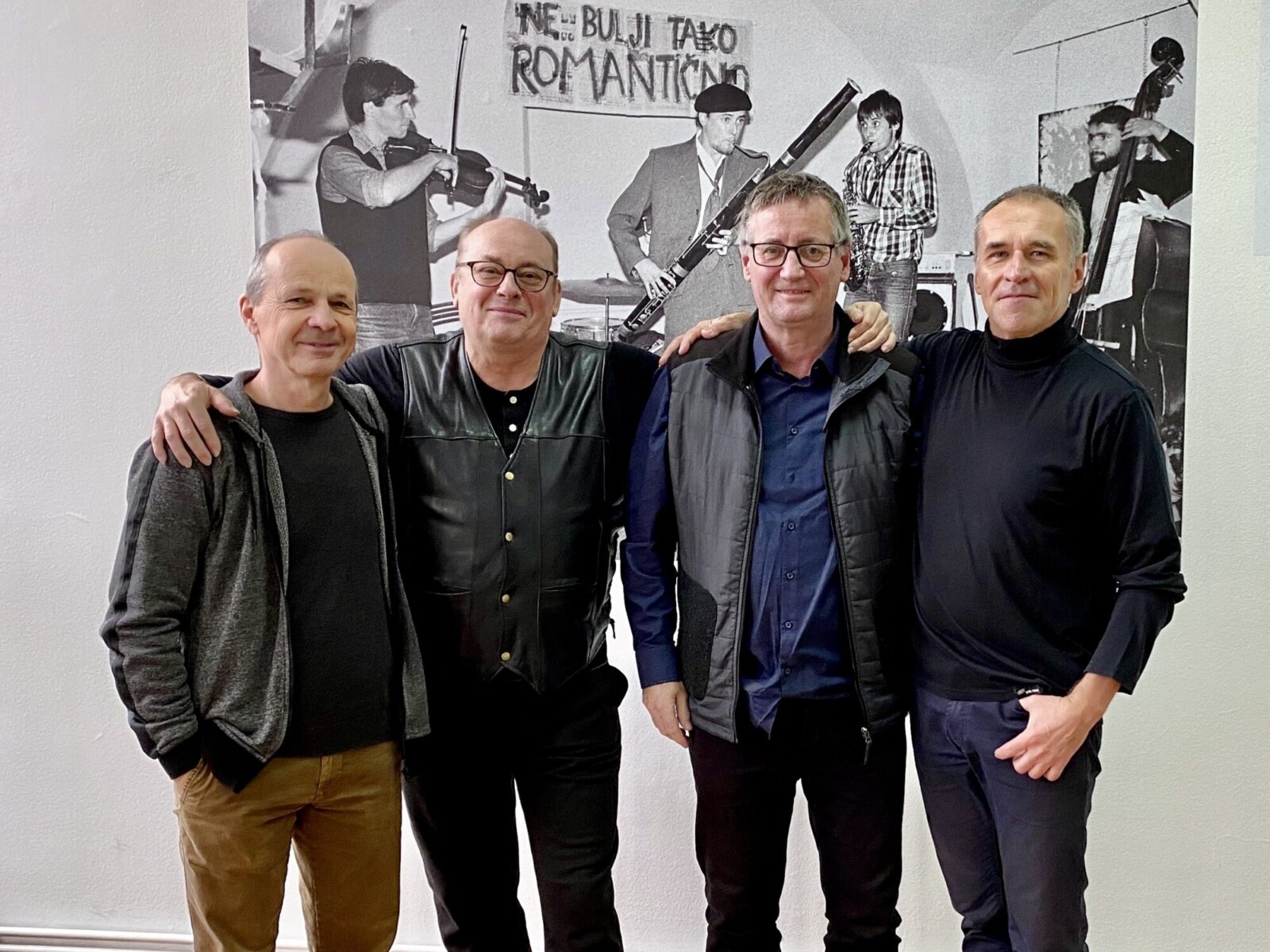
P74 Gallery Official Website / Facebook / Instagram
Tadej Pogačar Official Website

